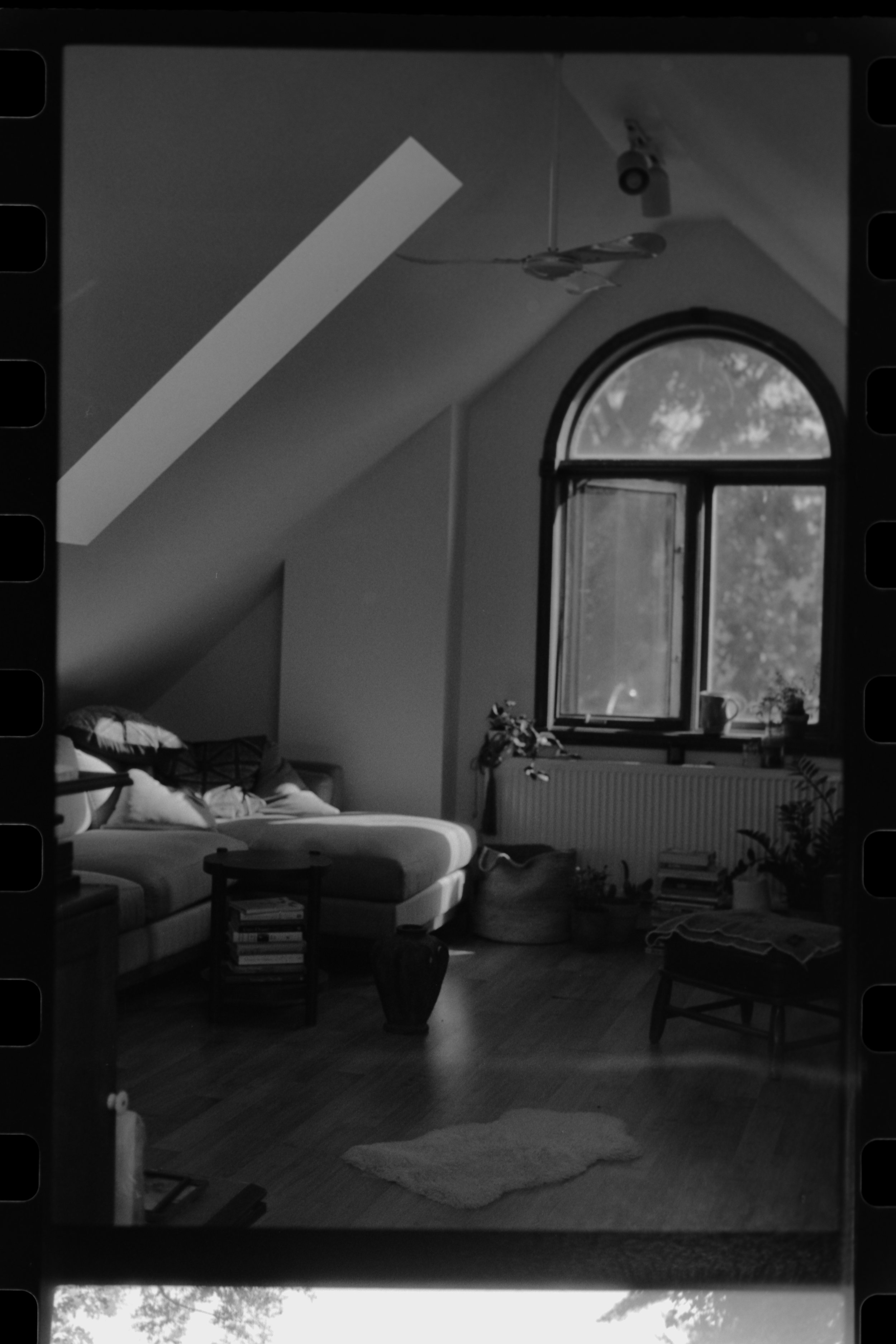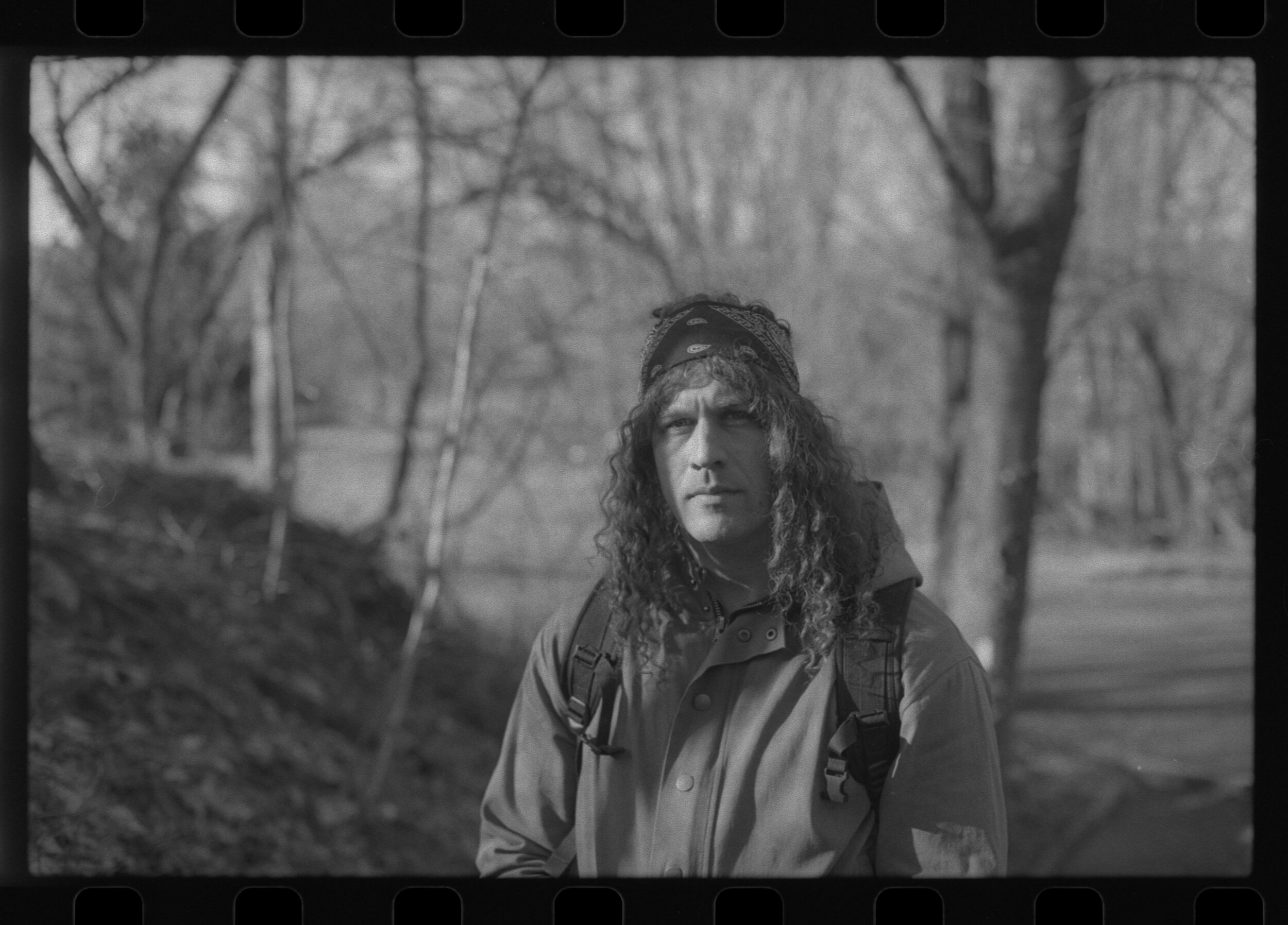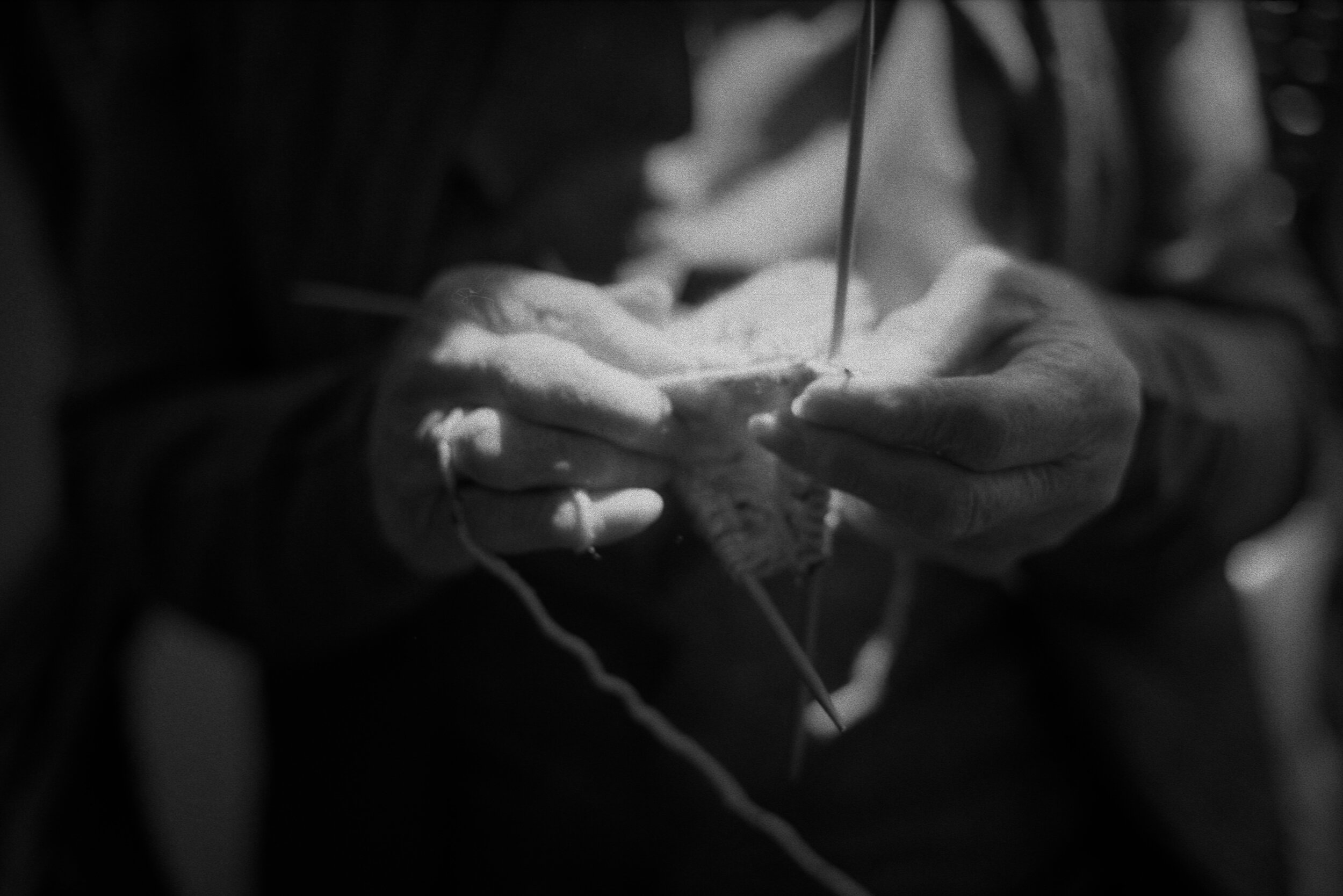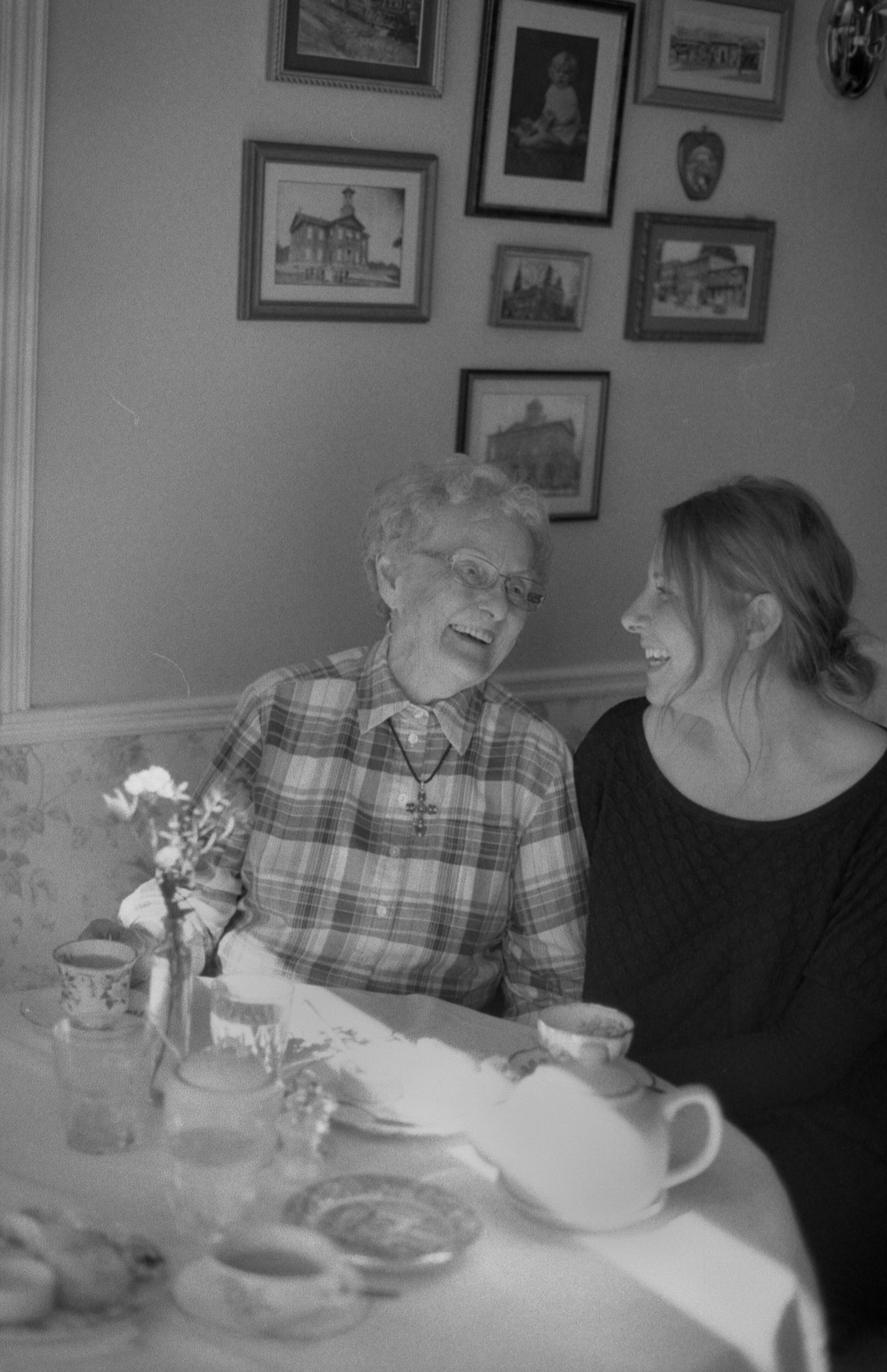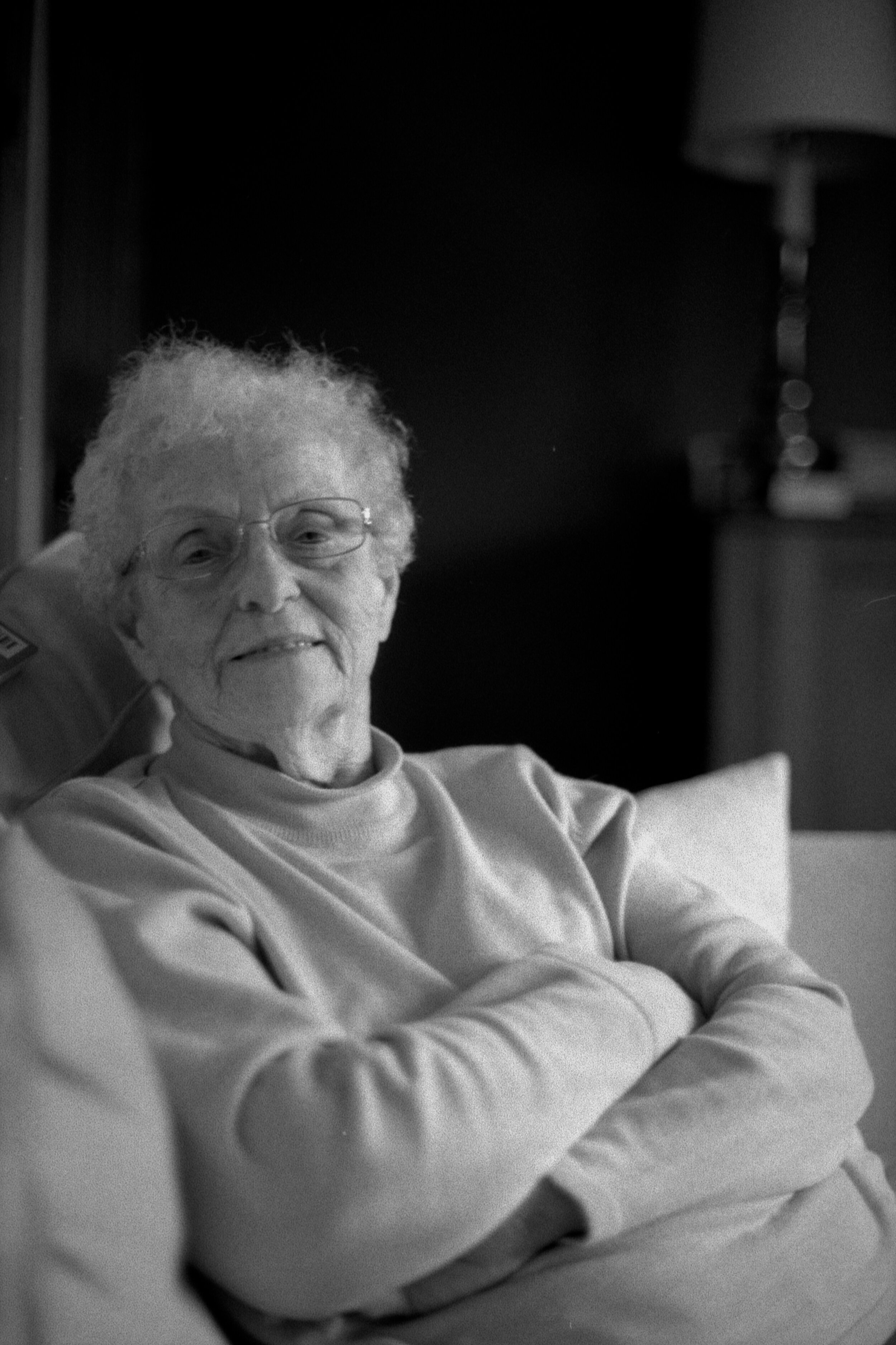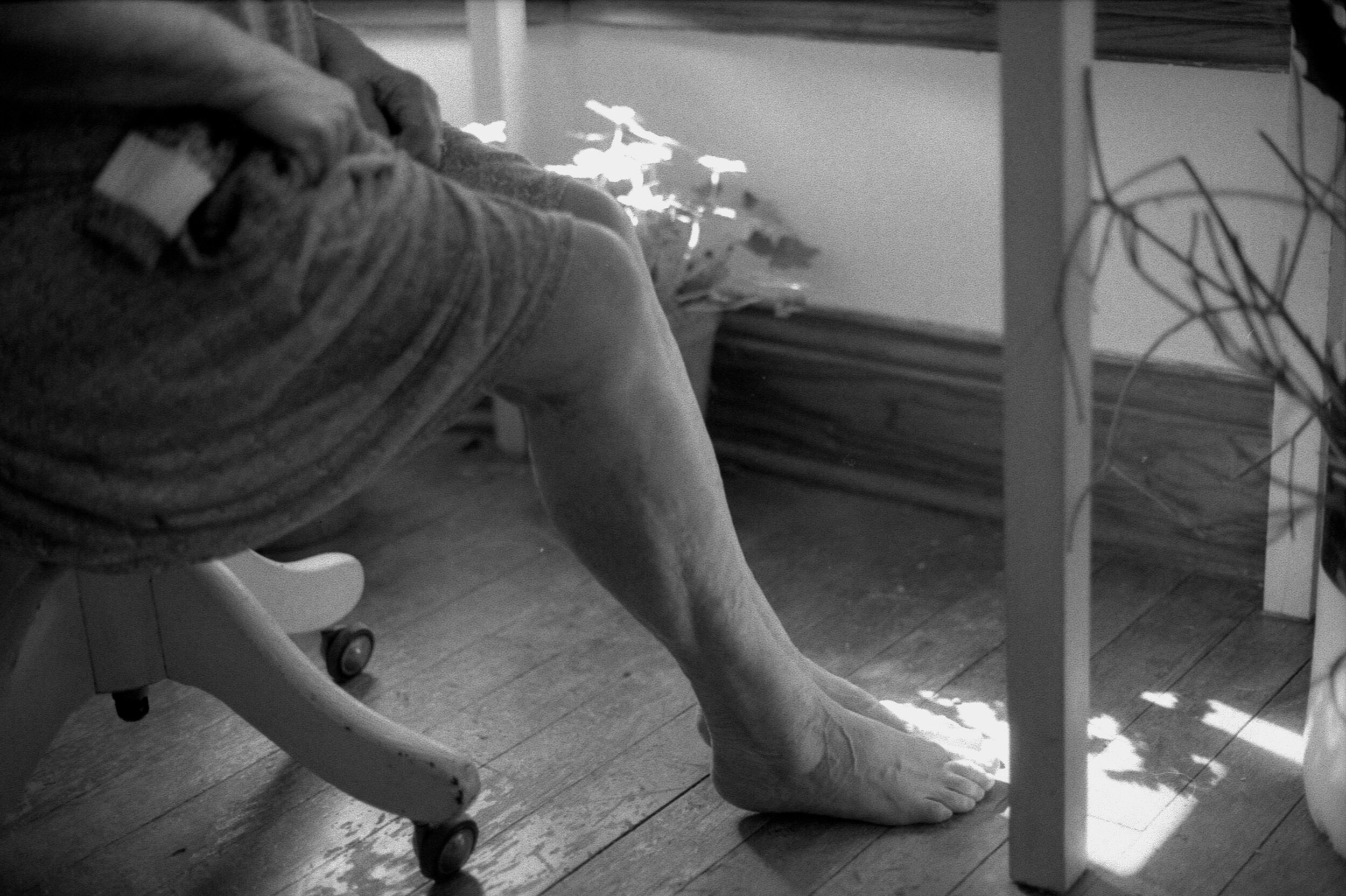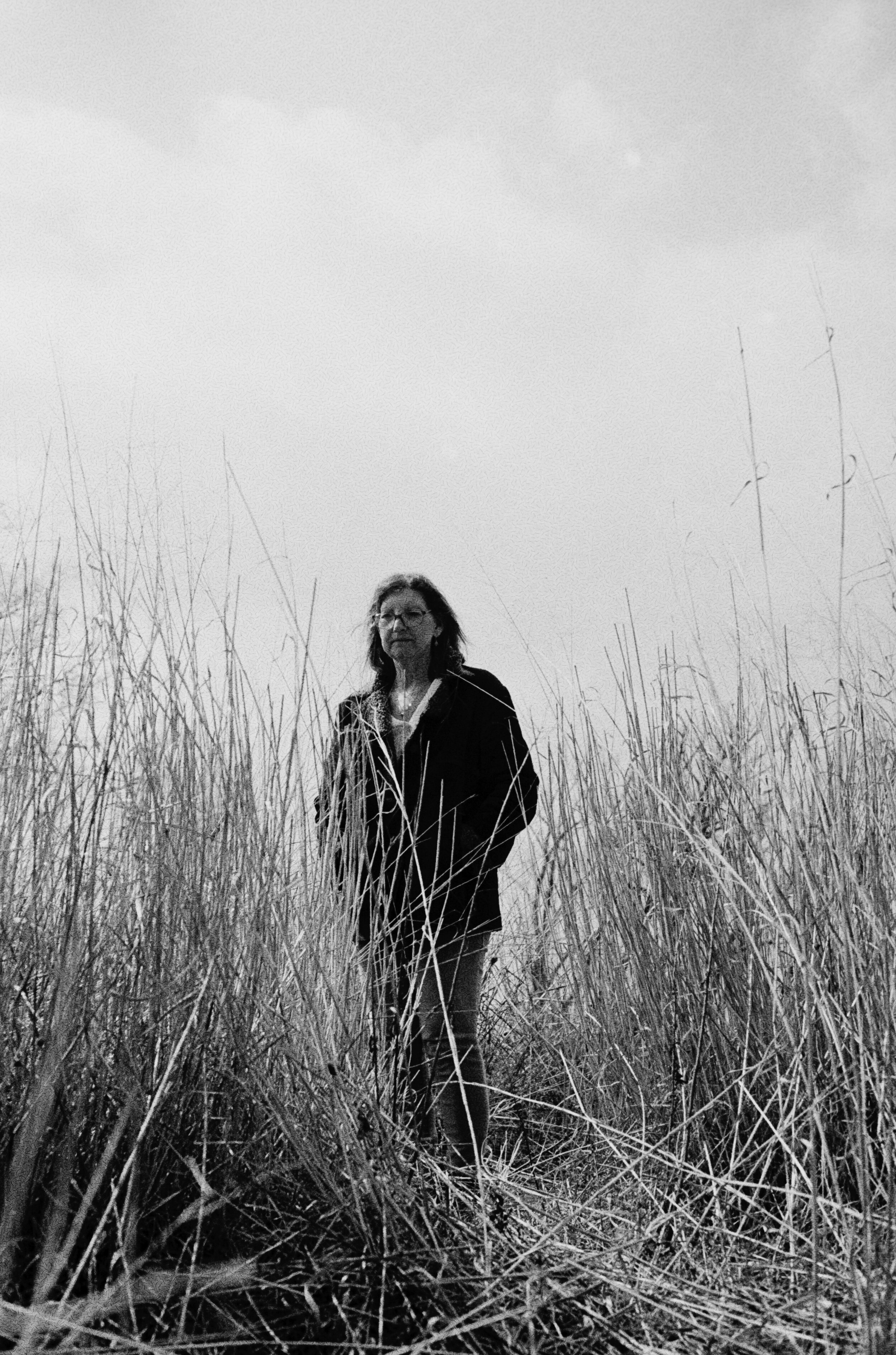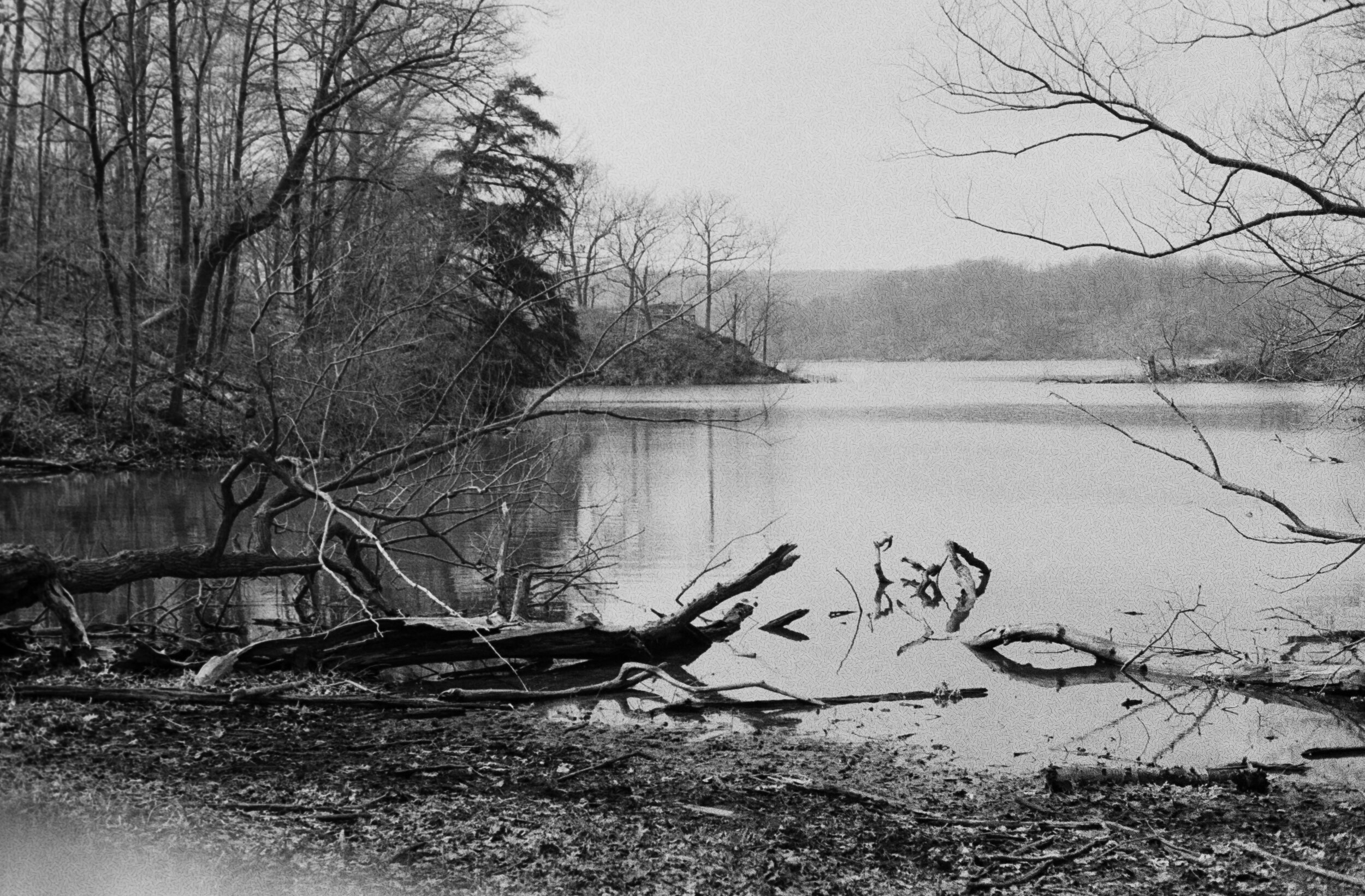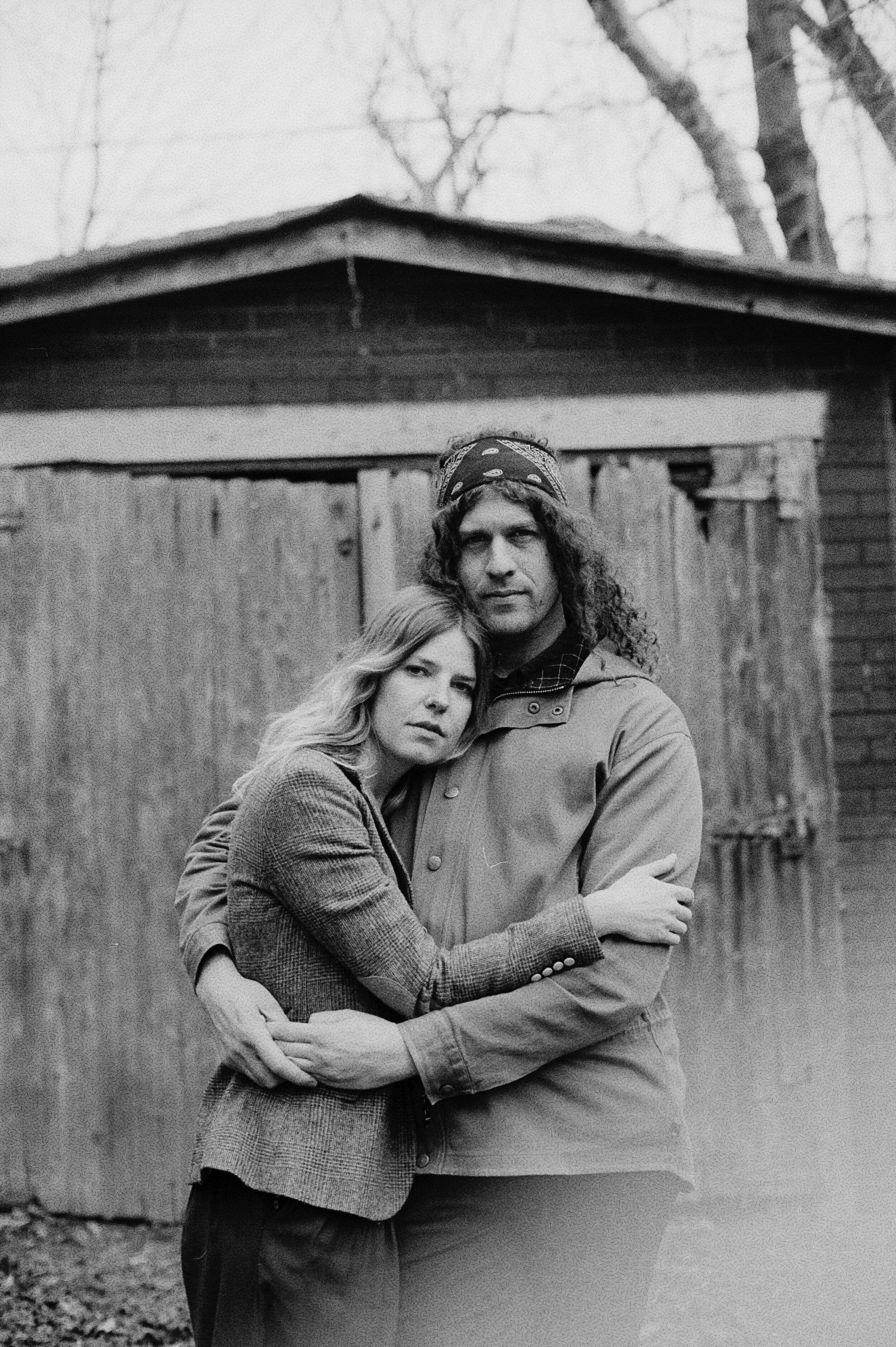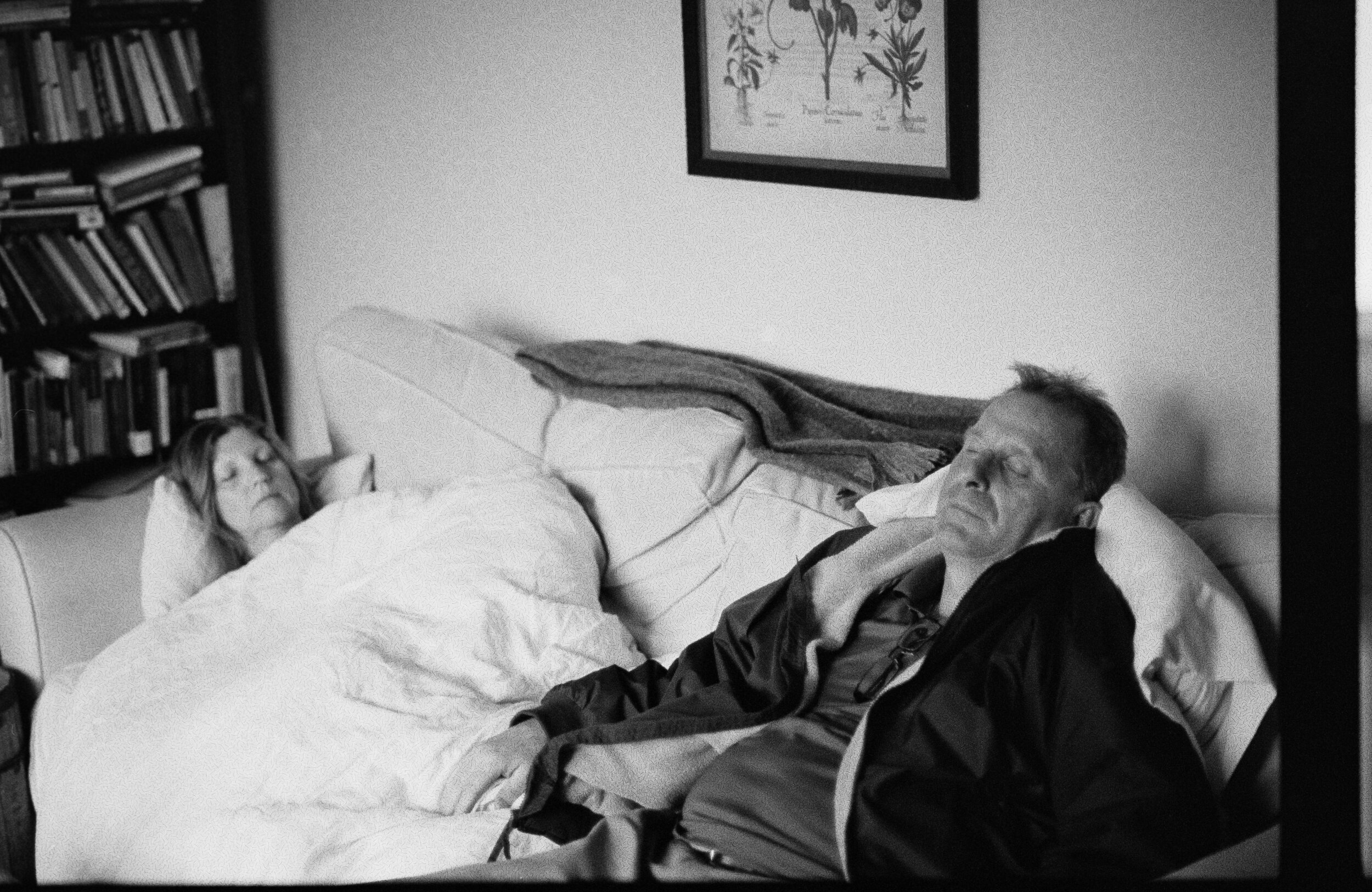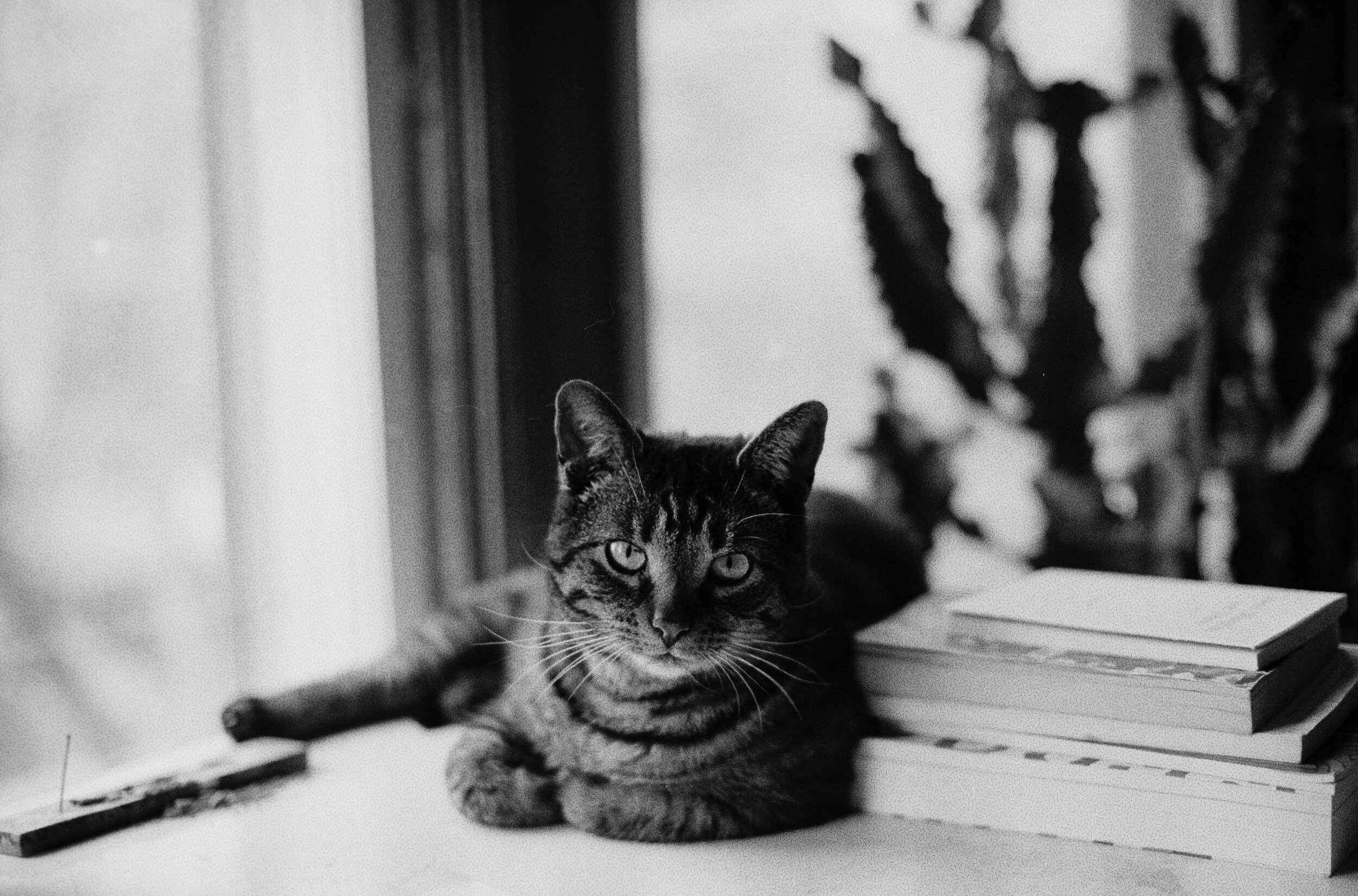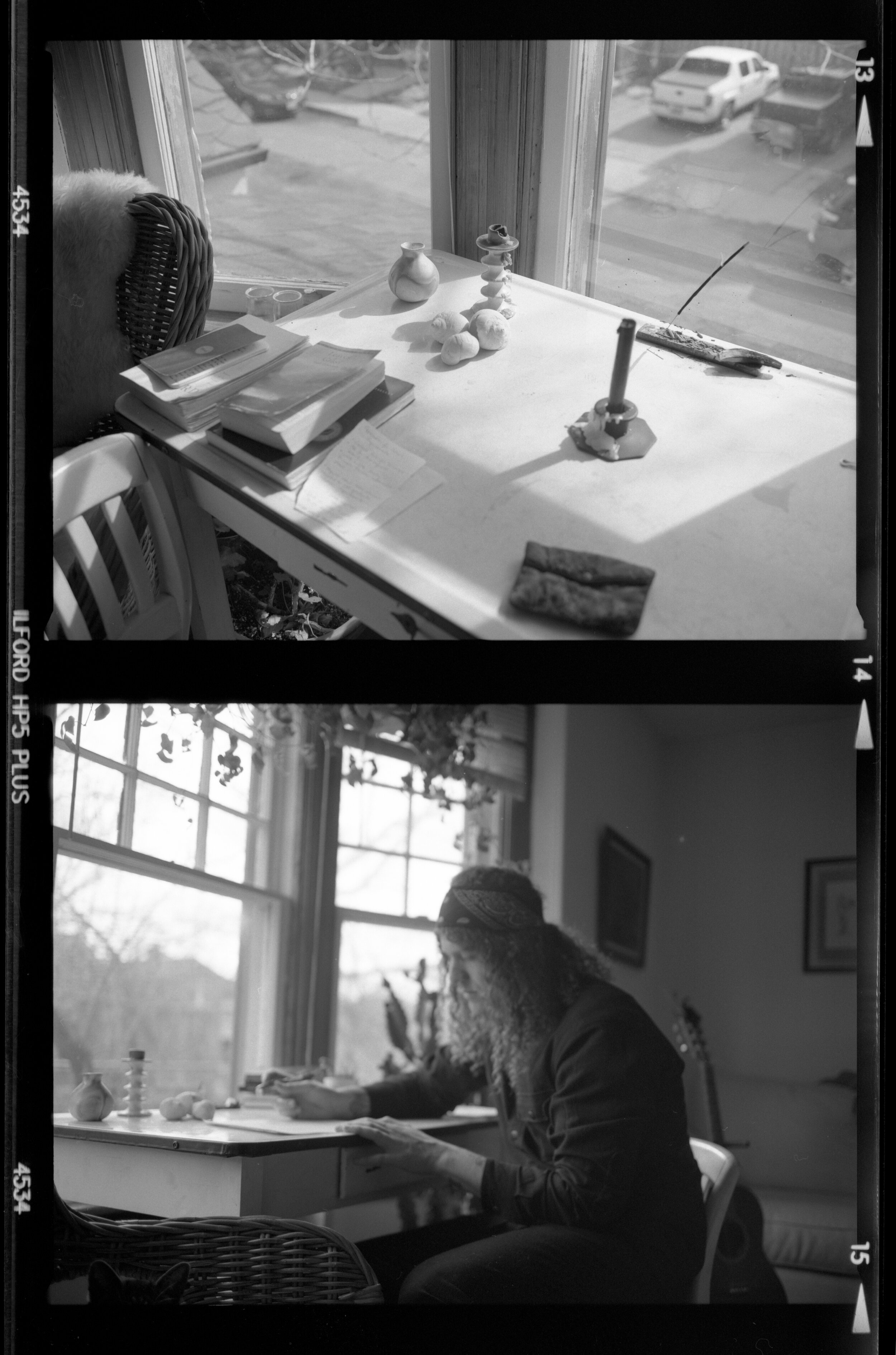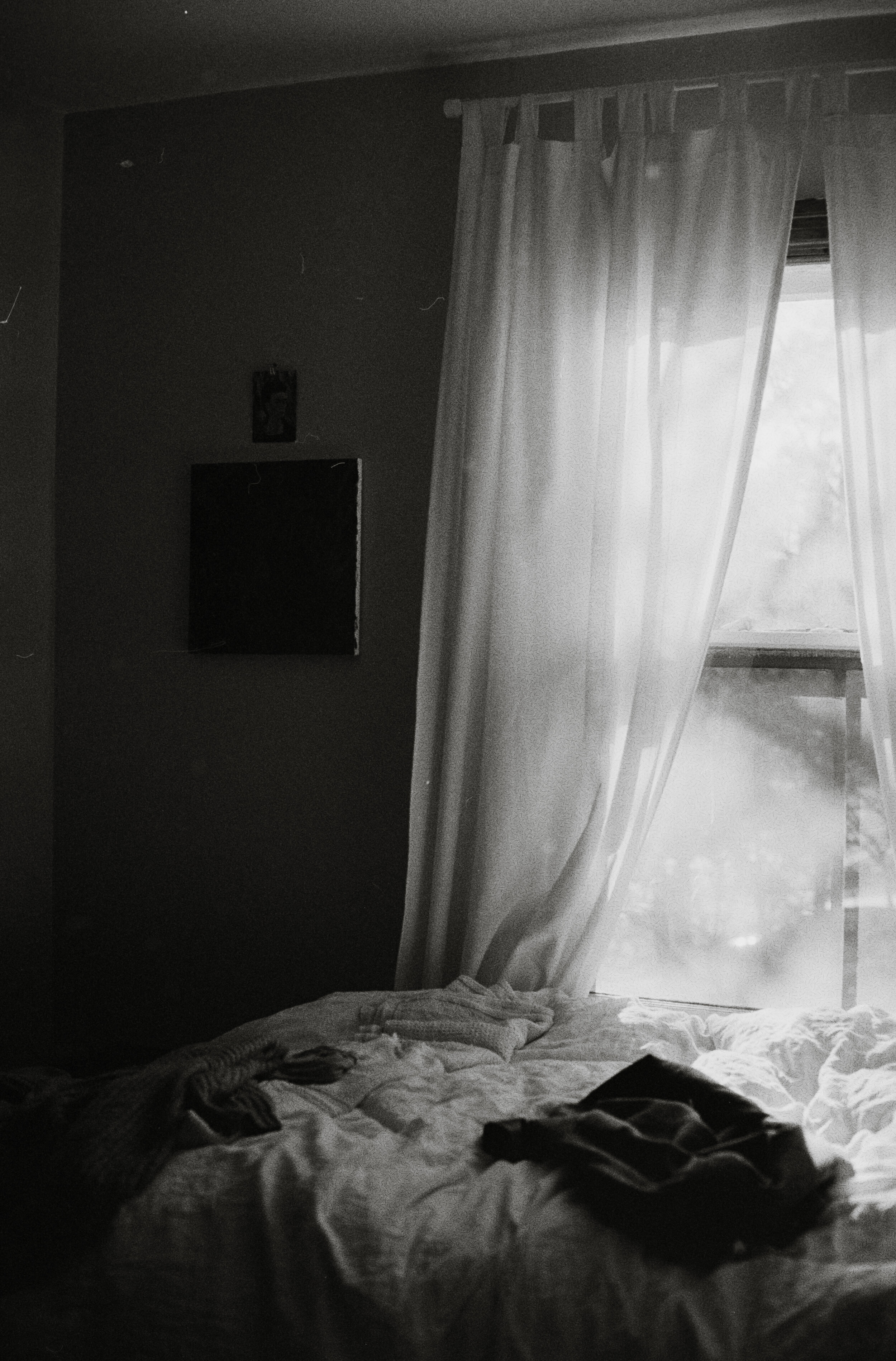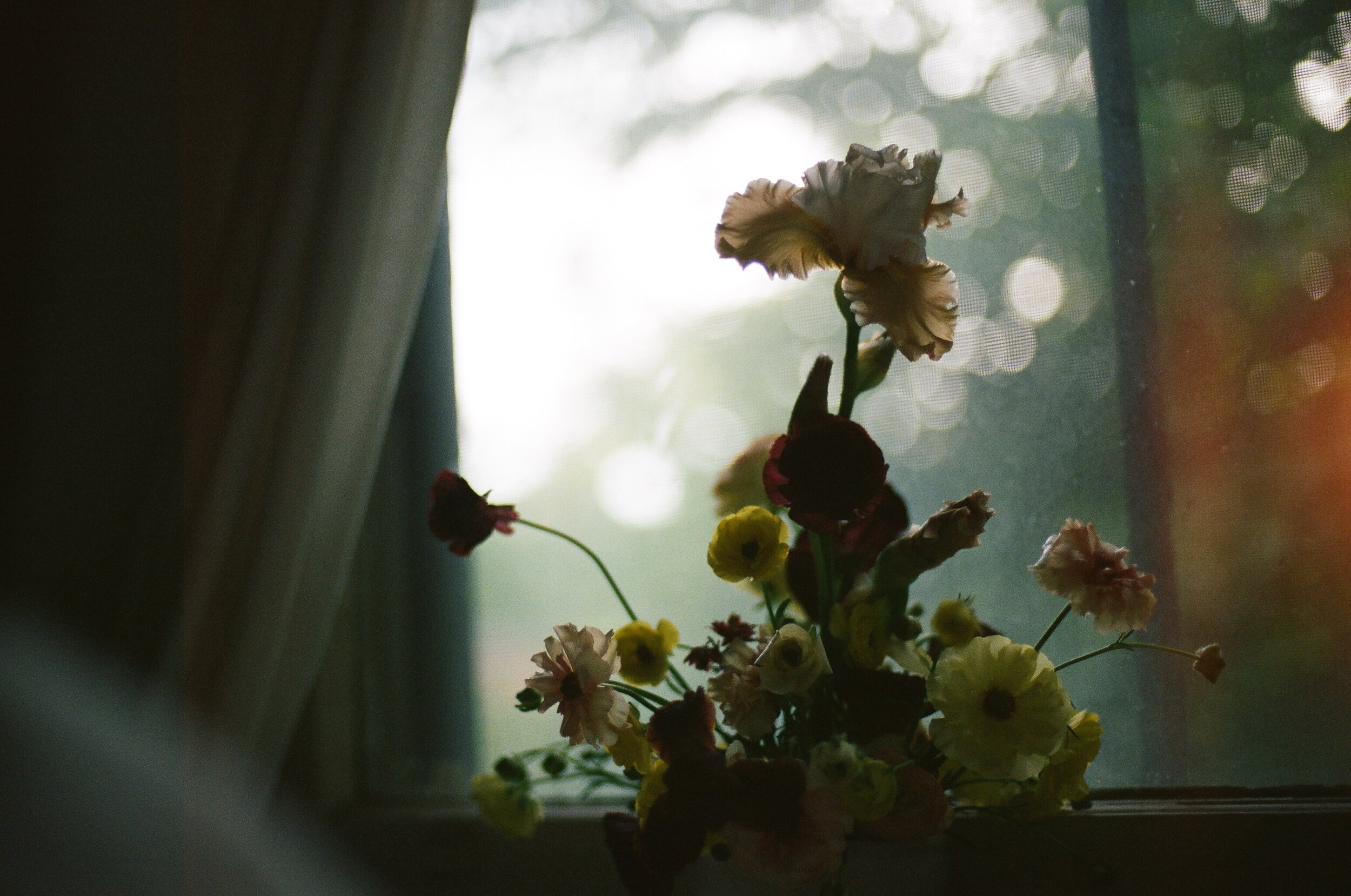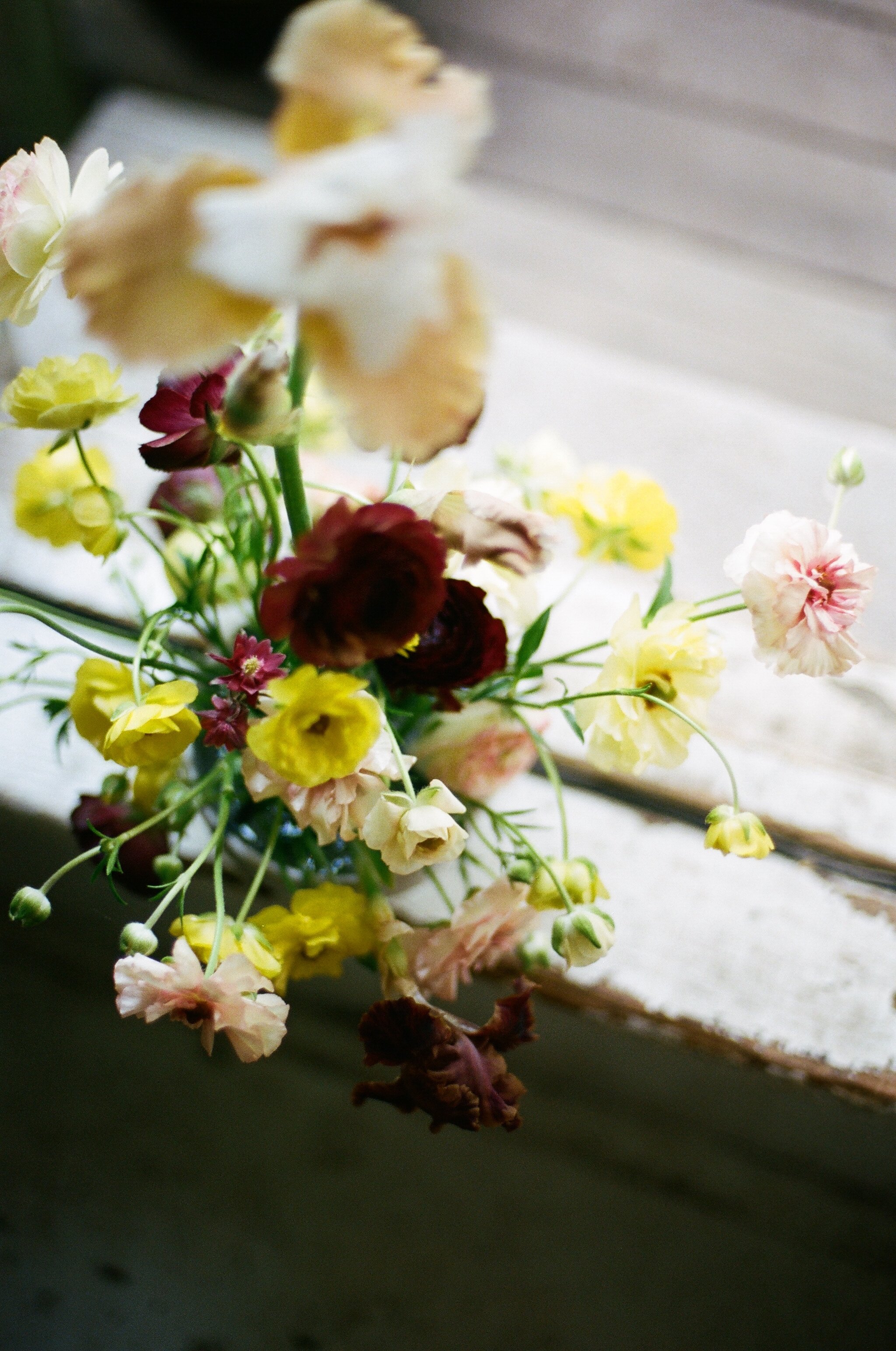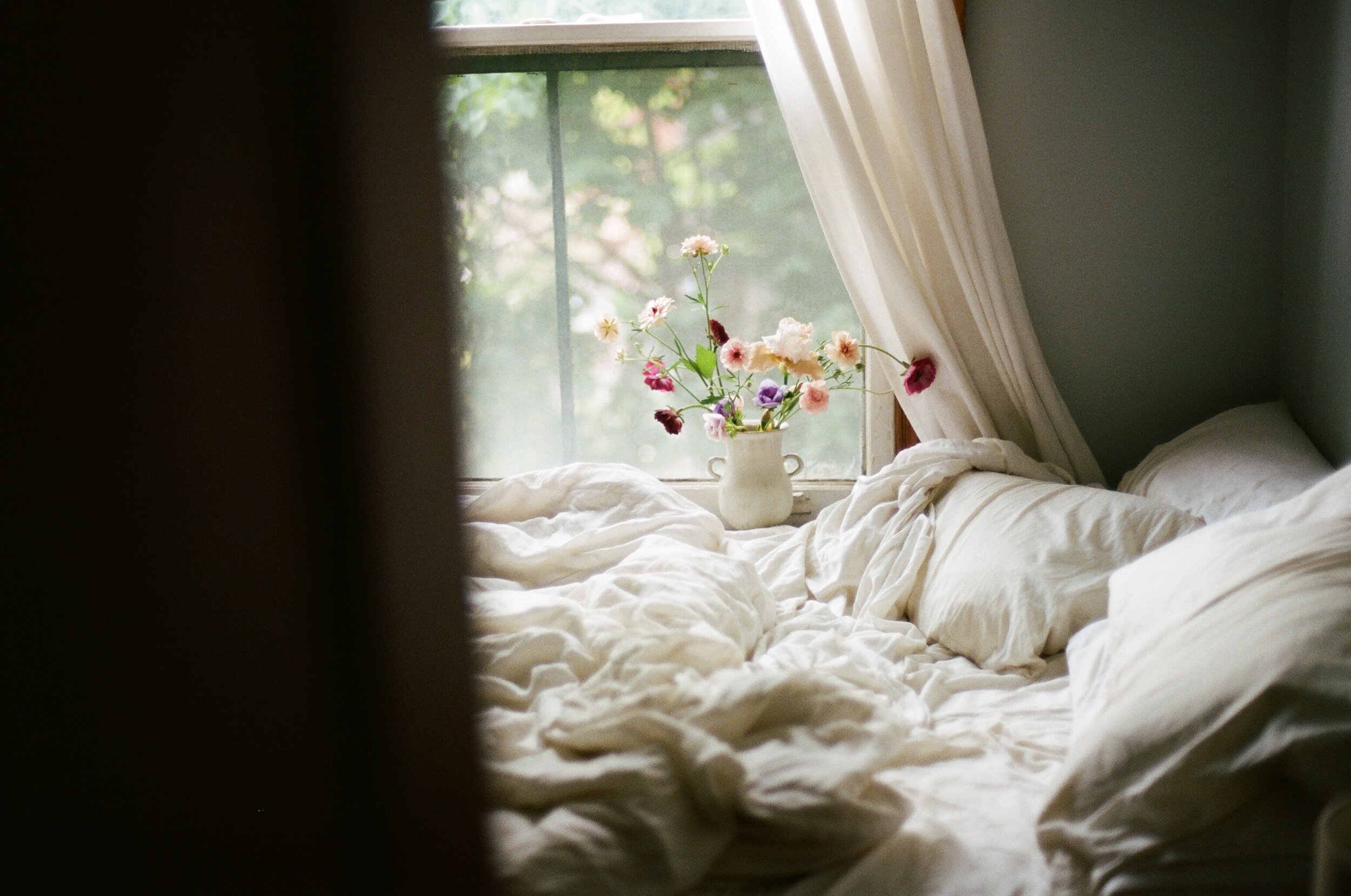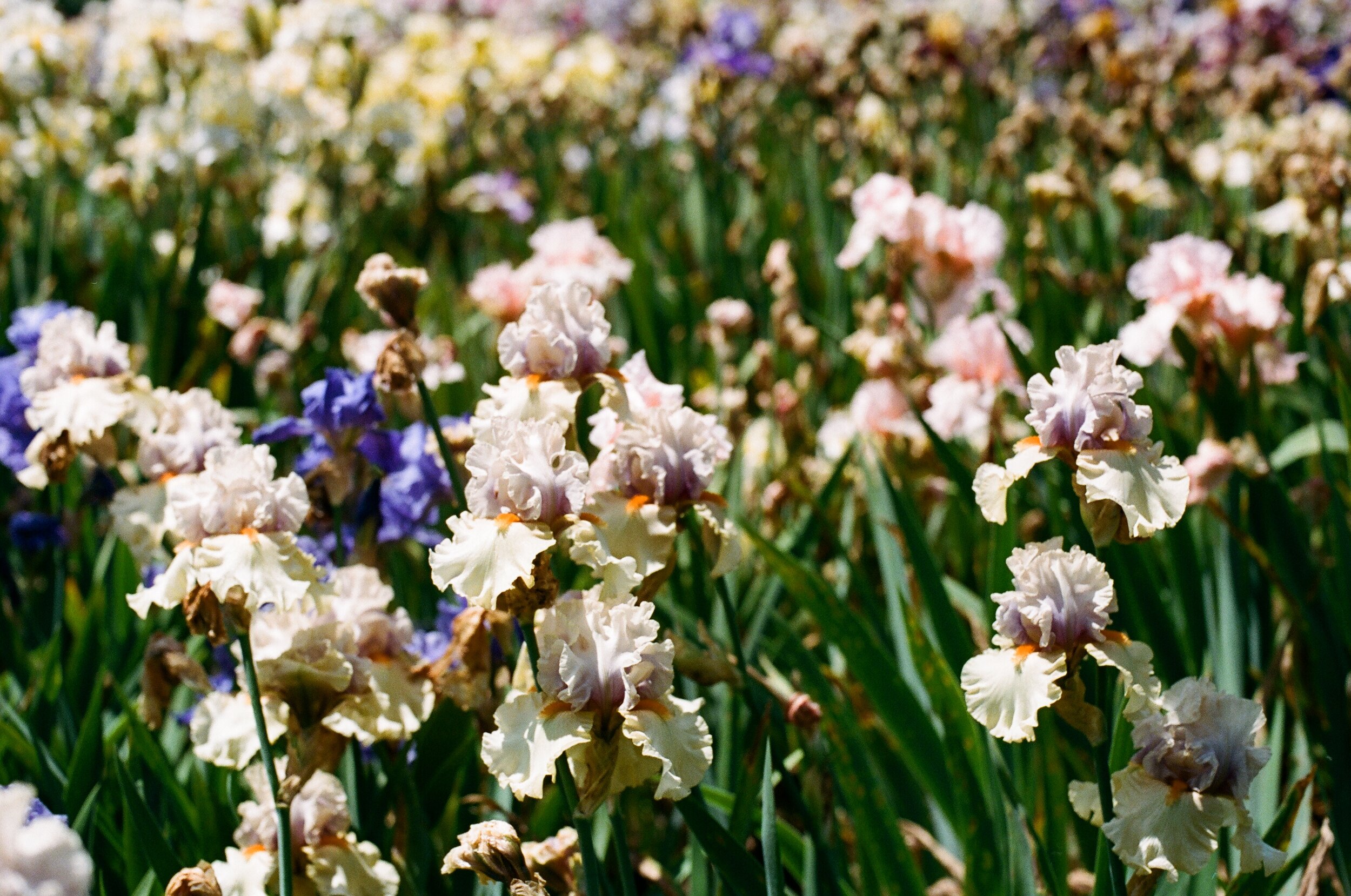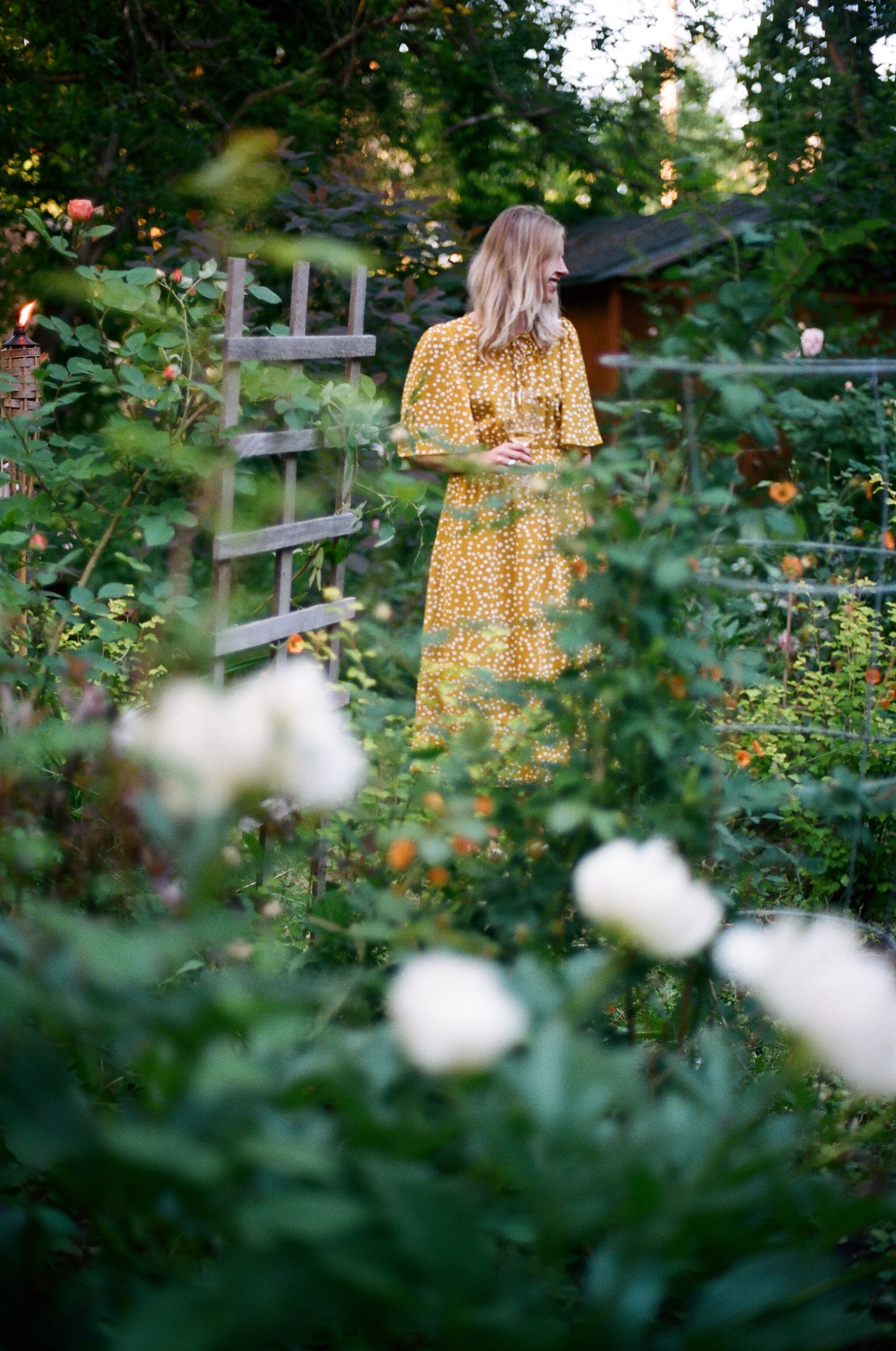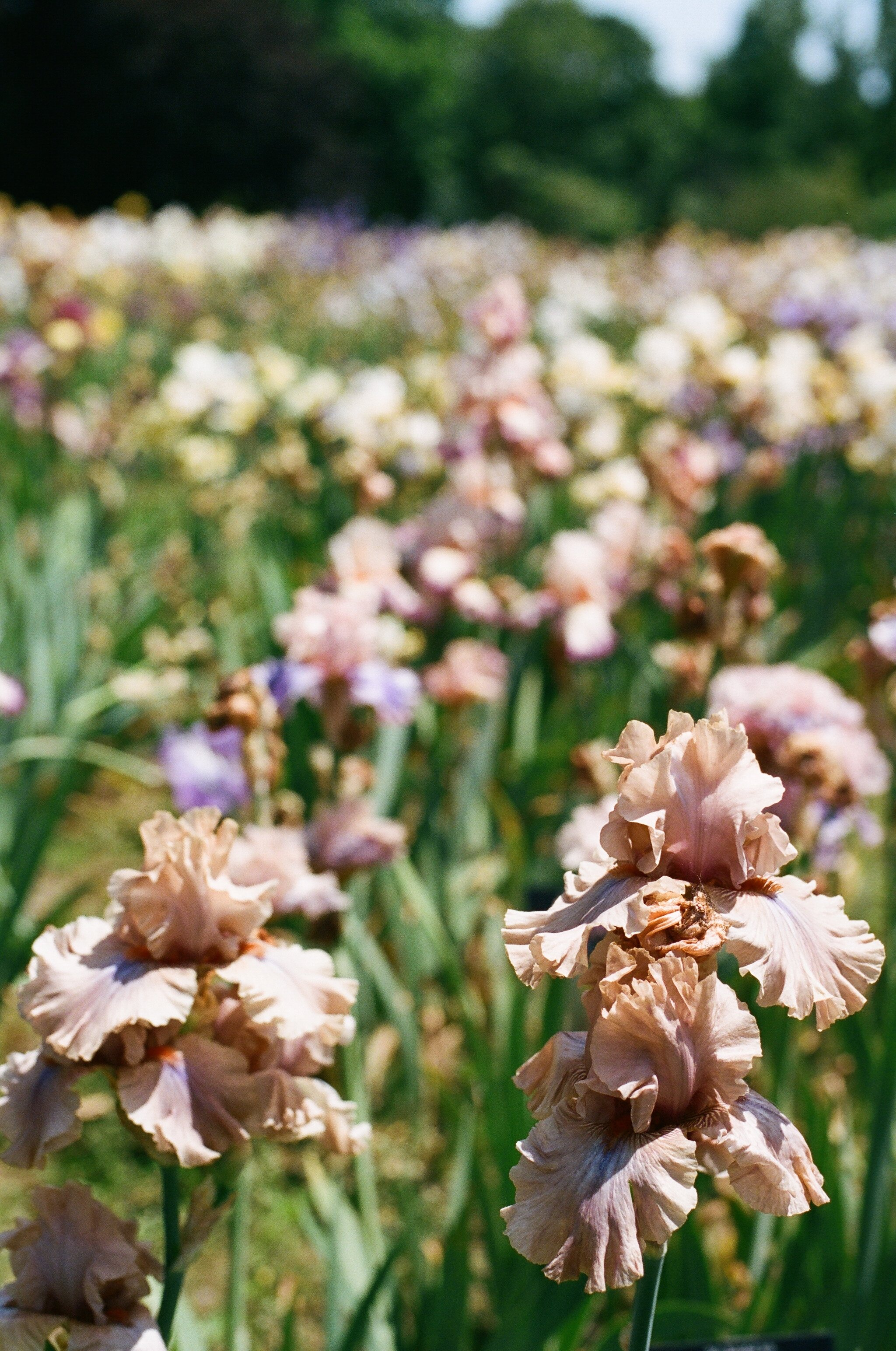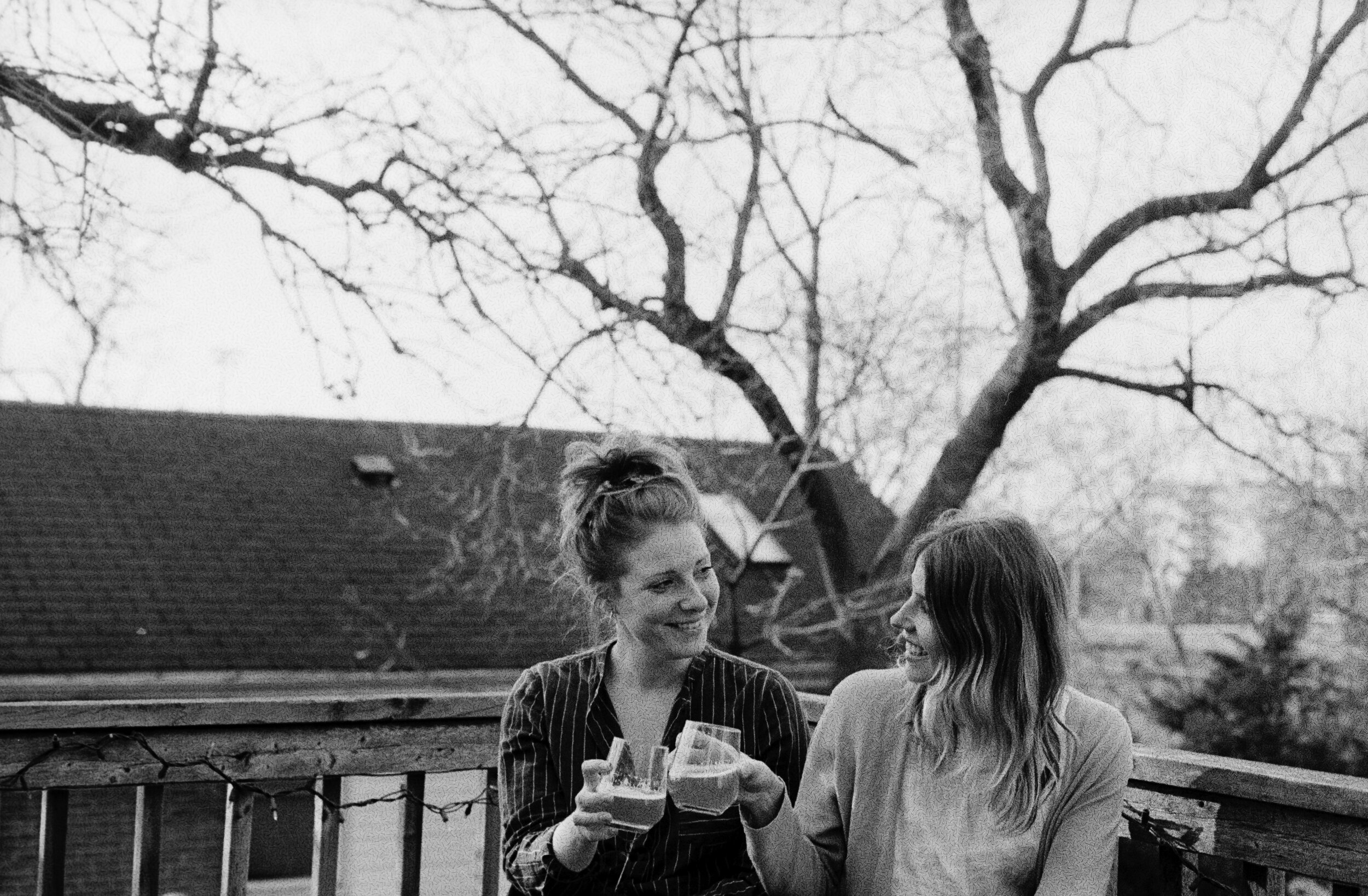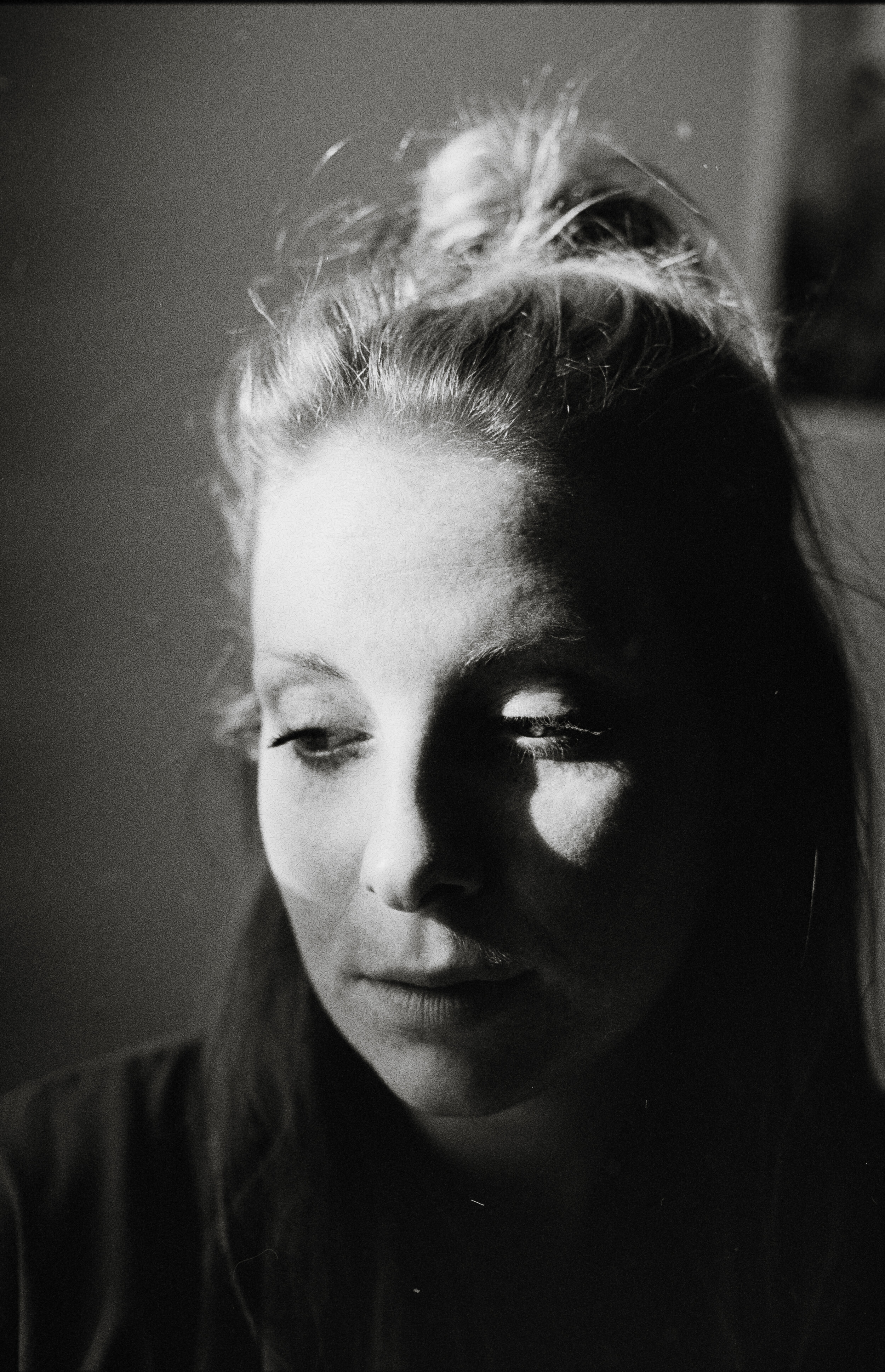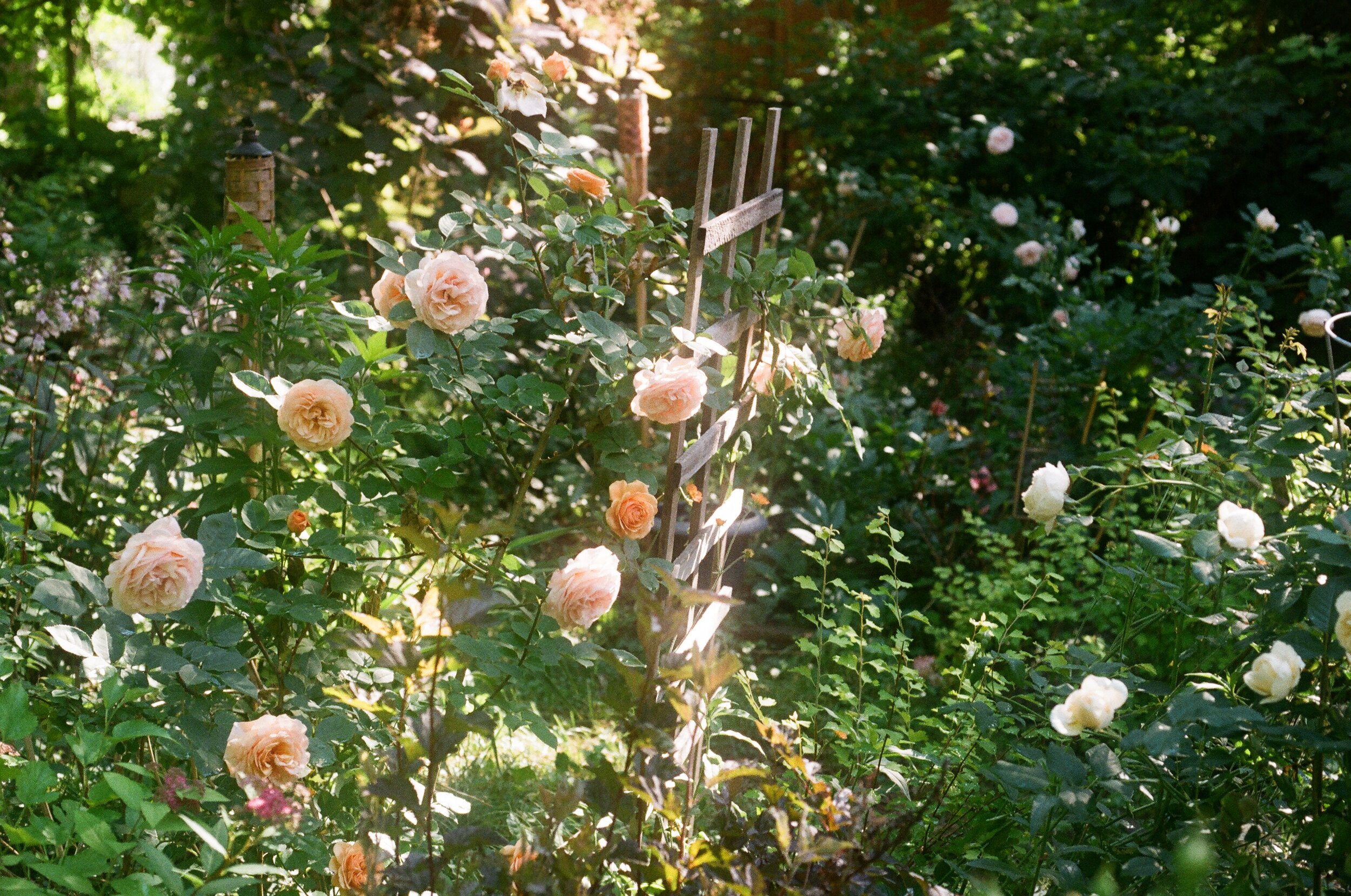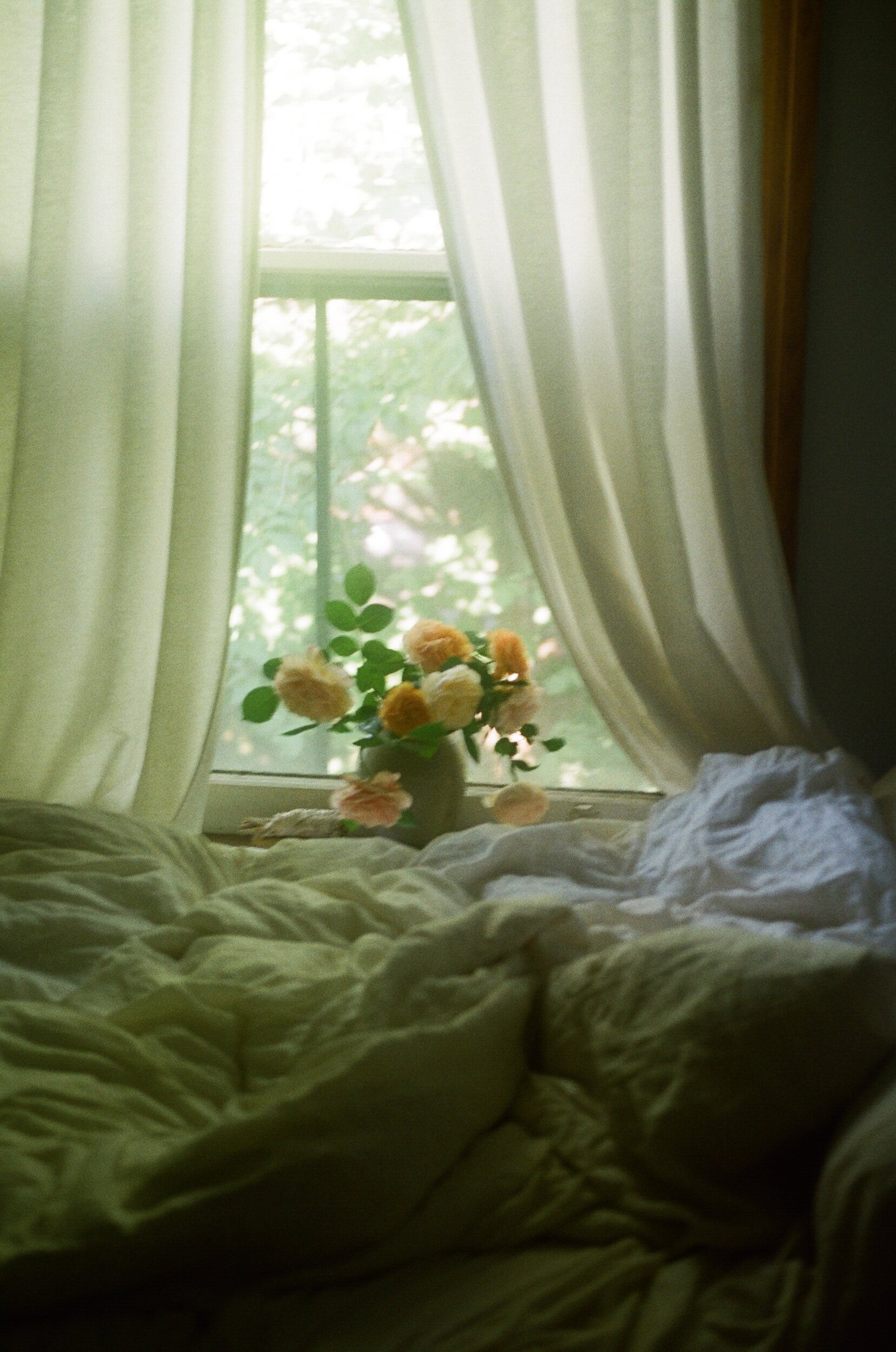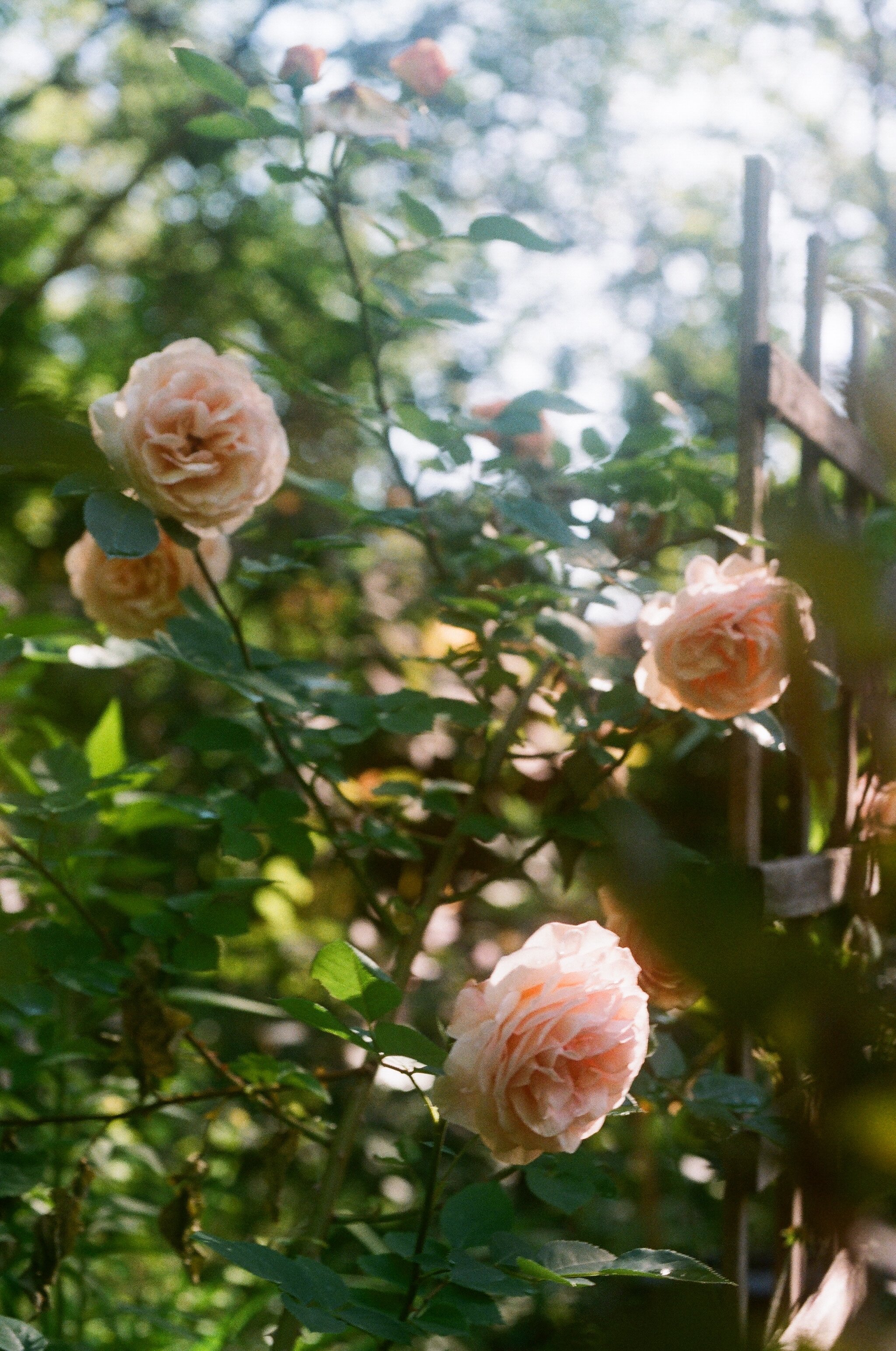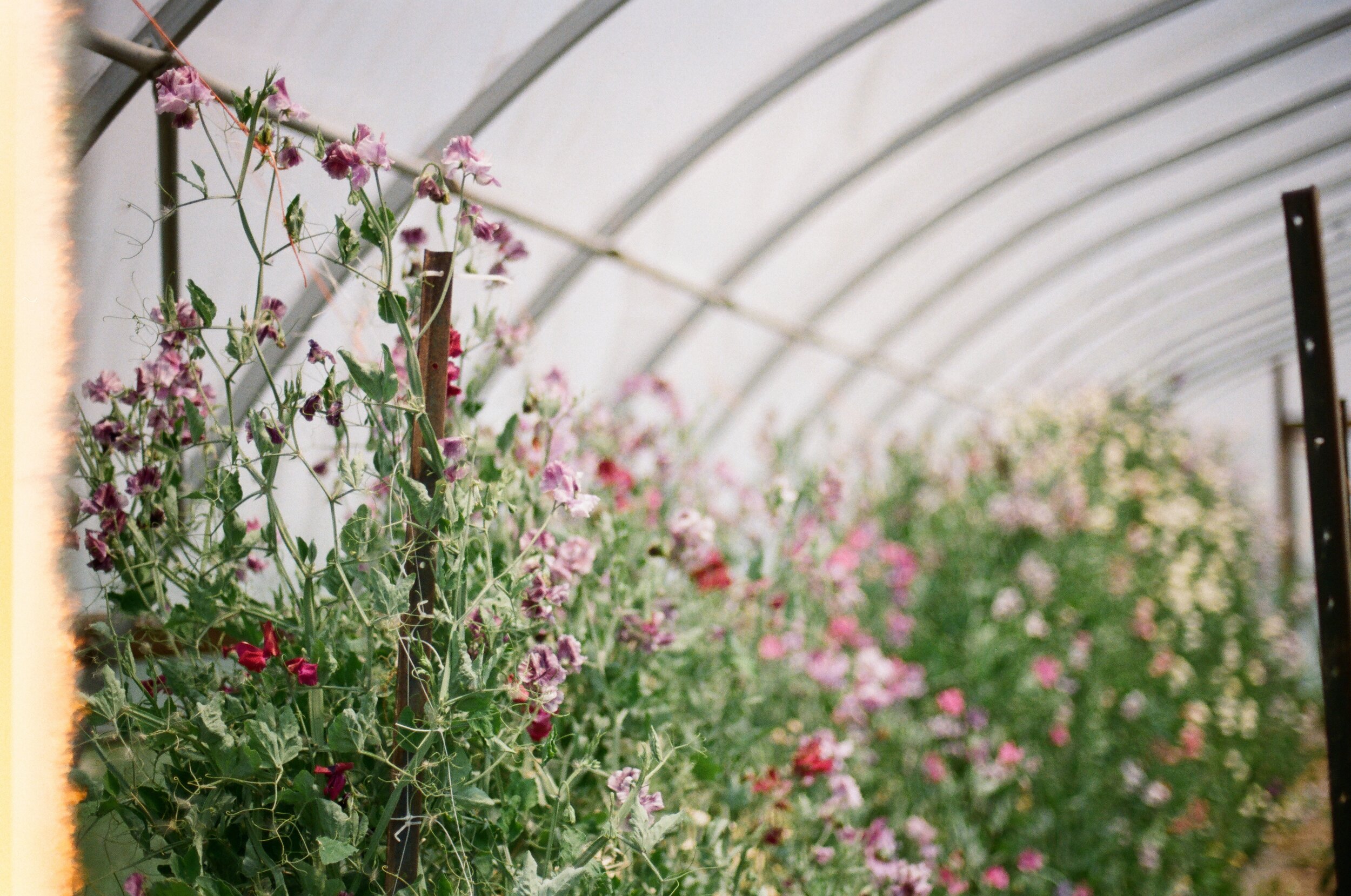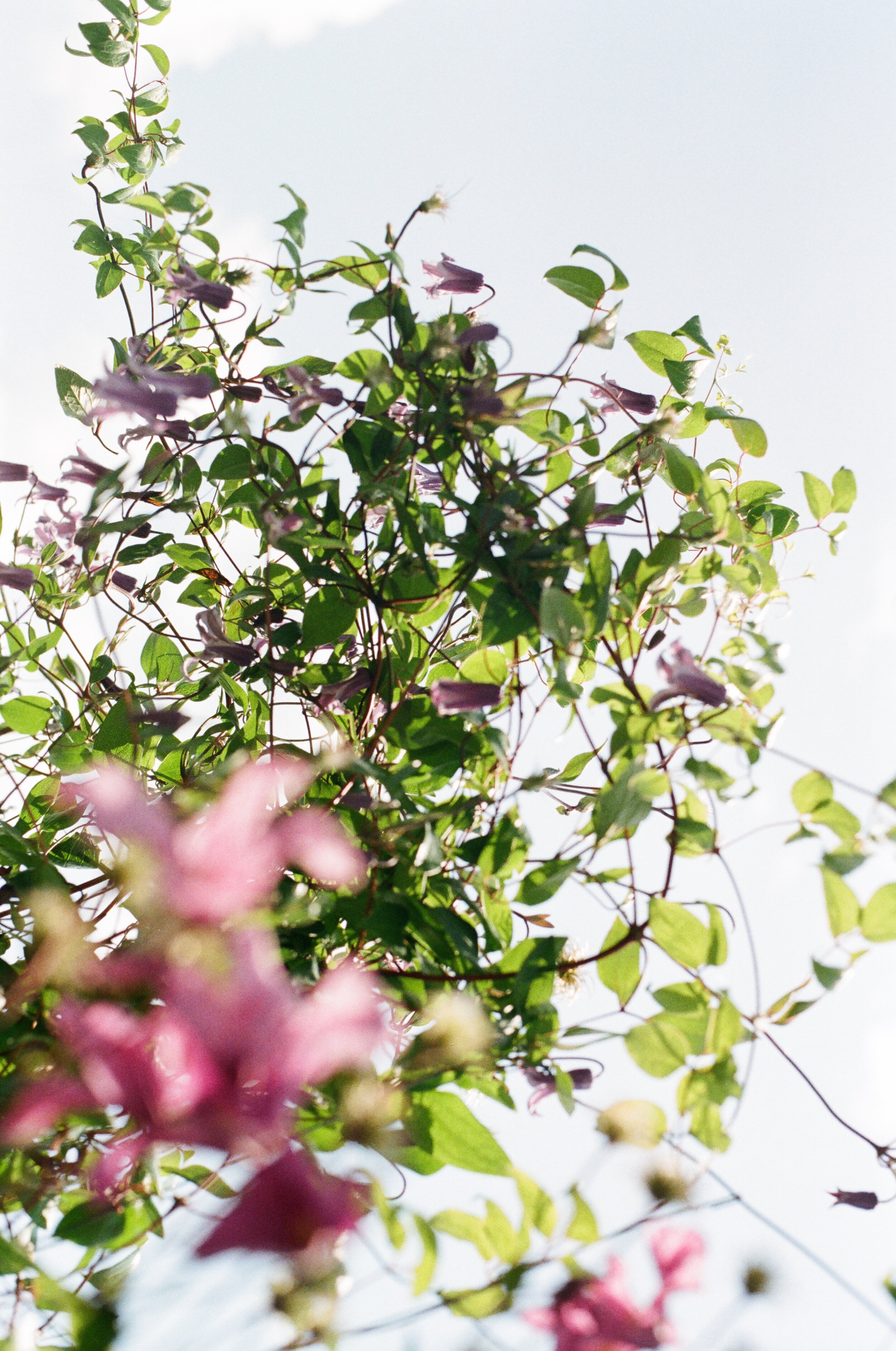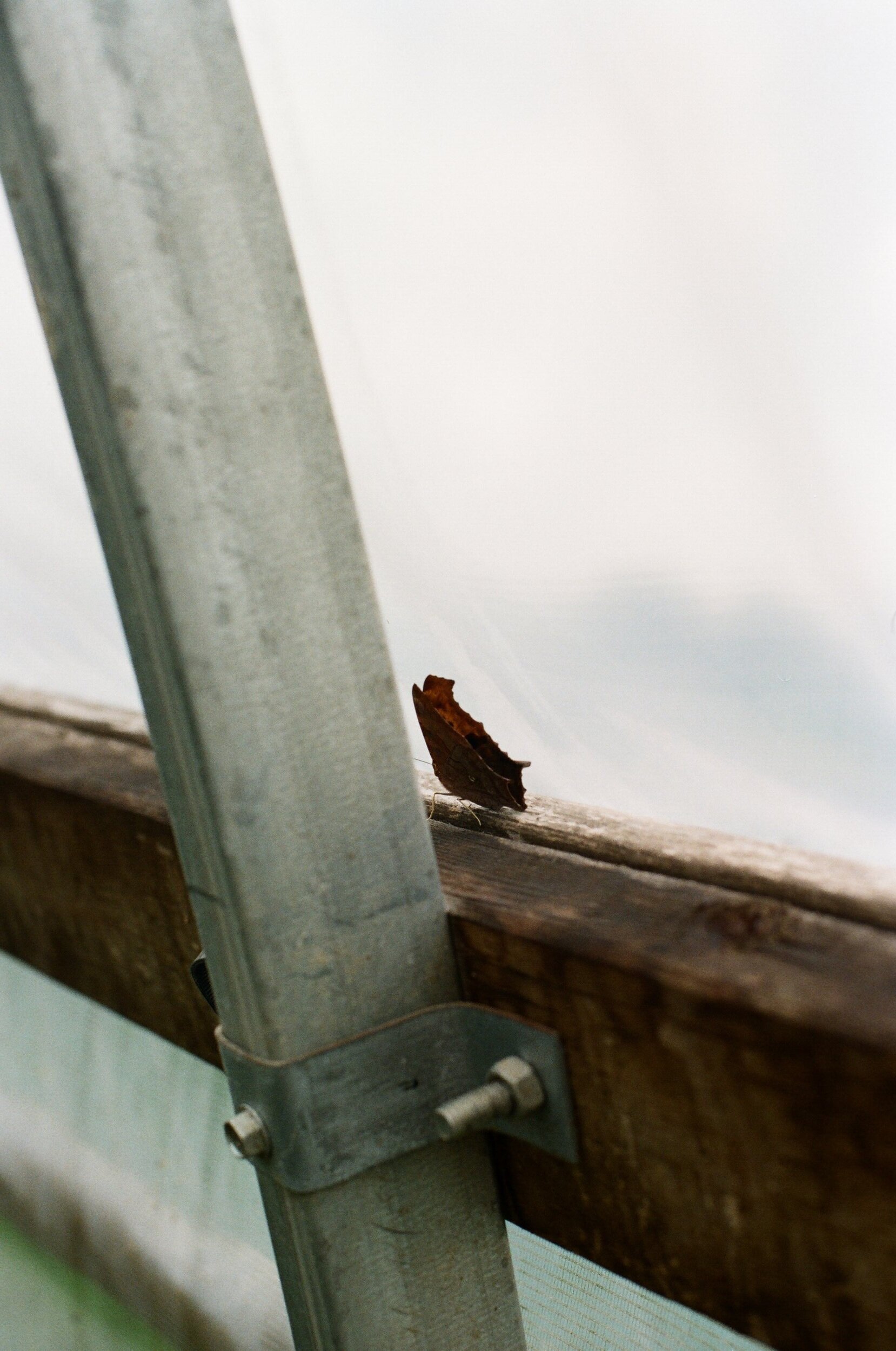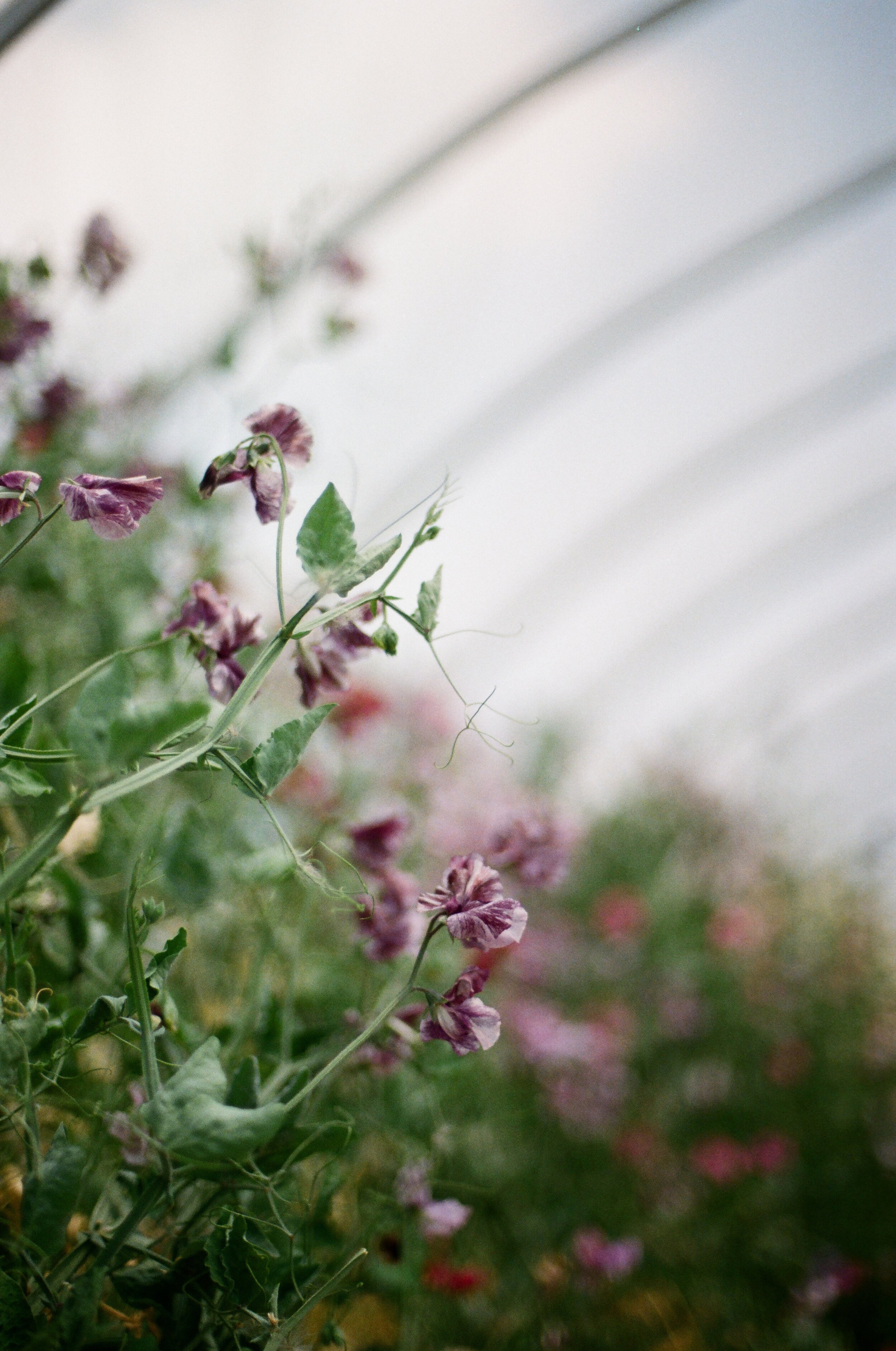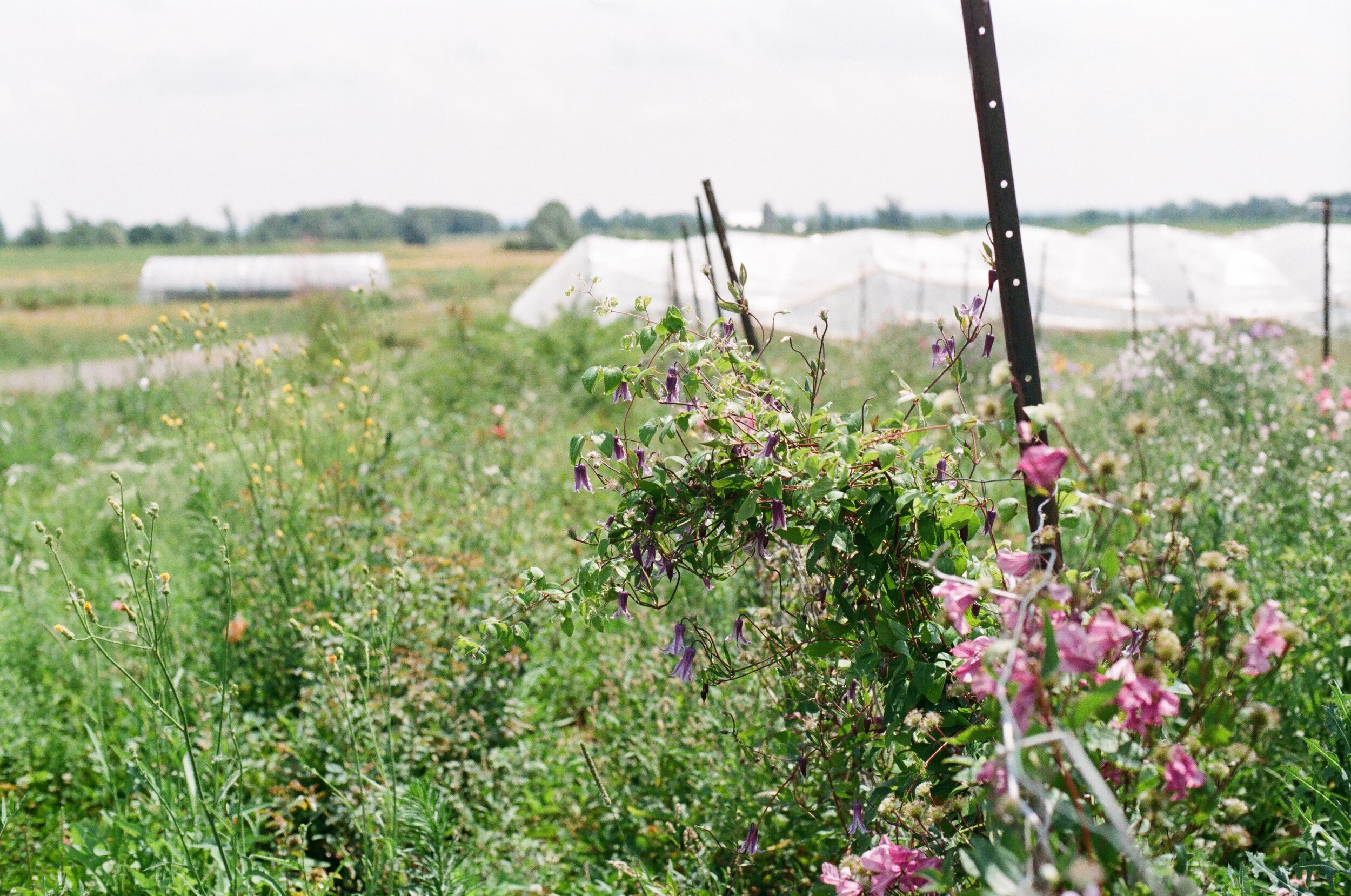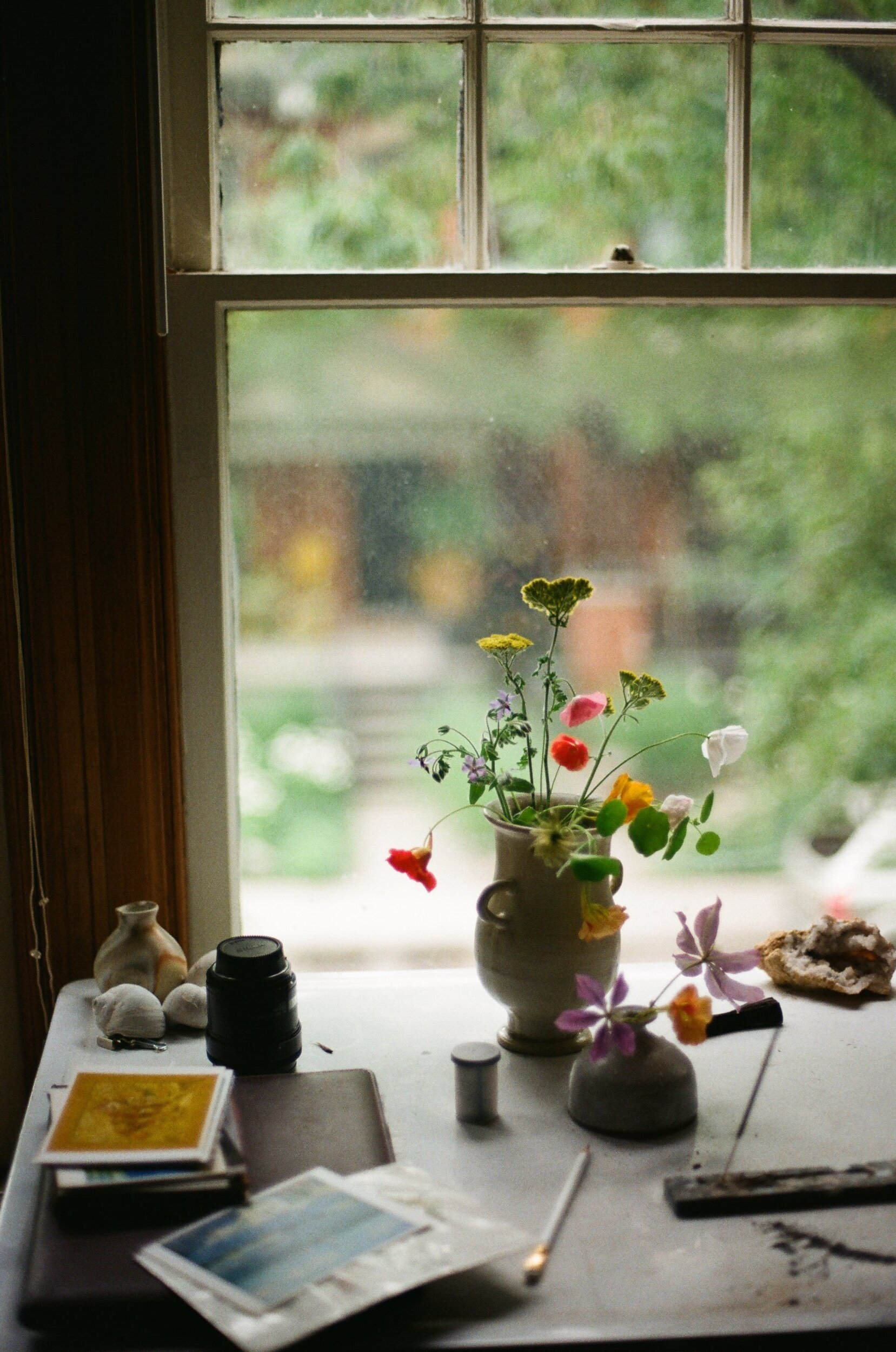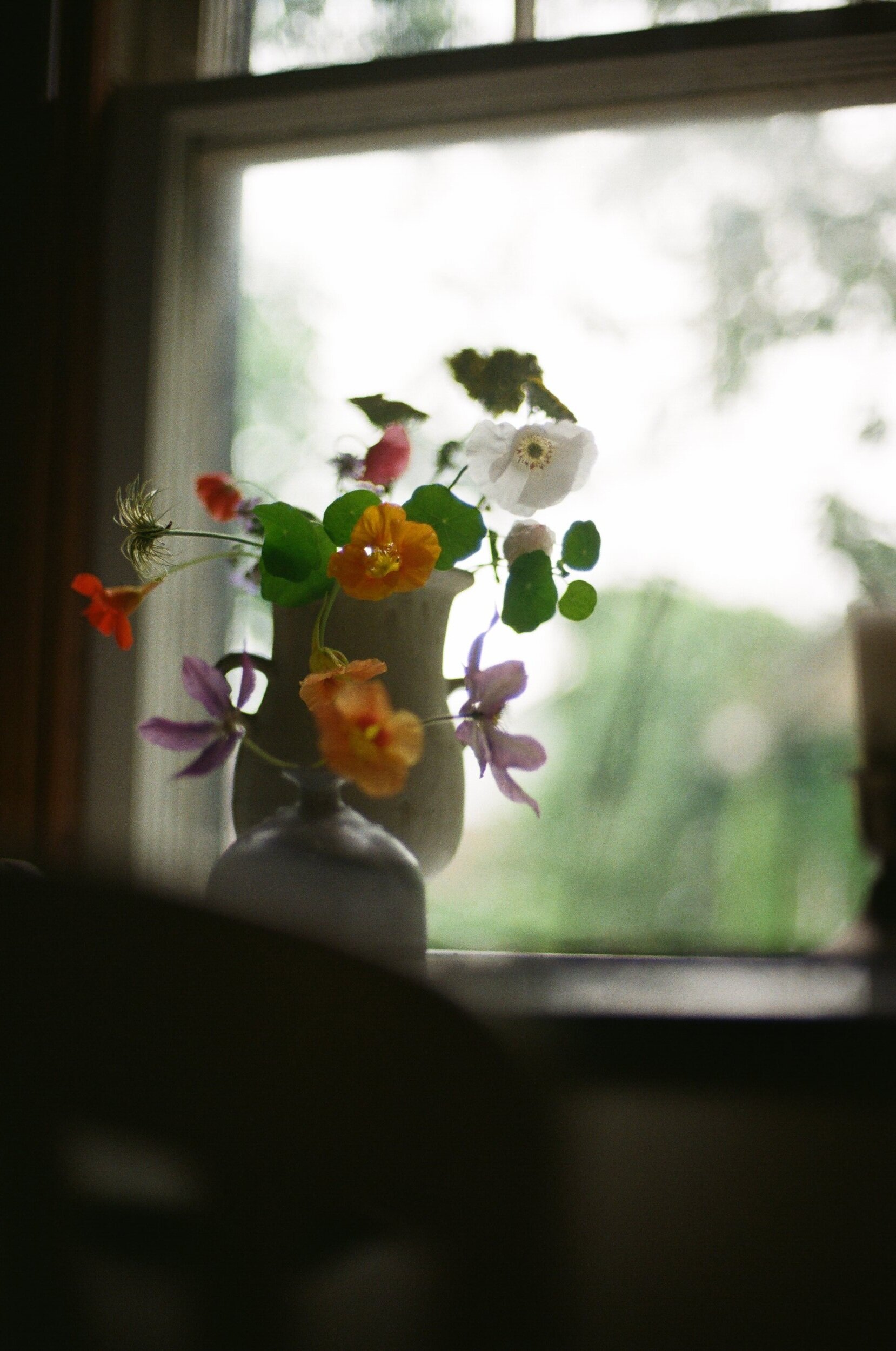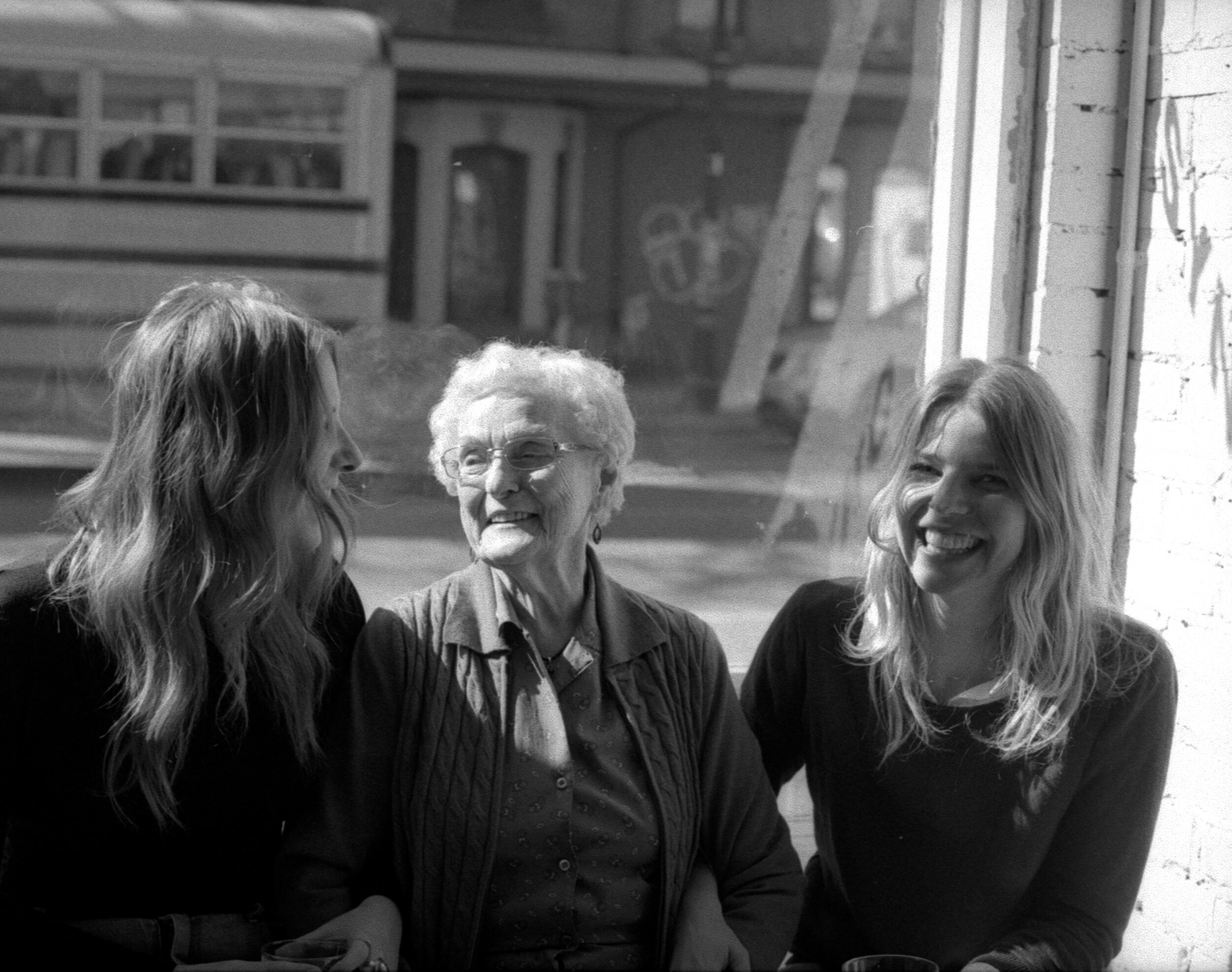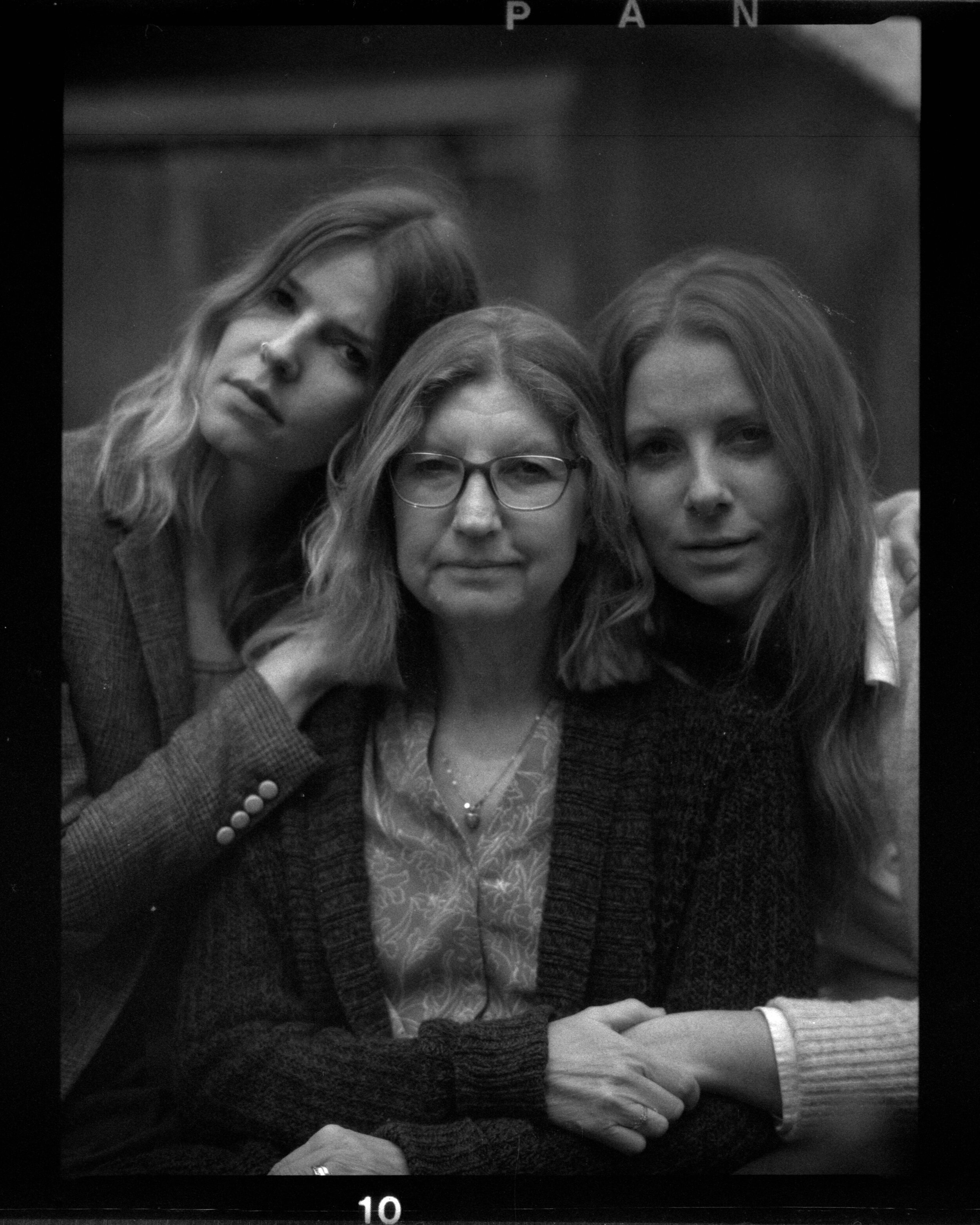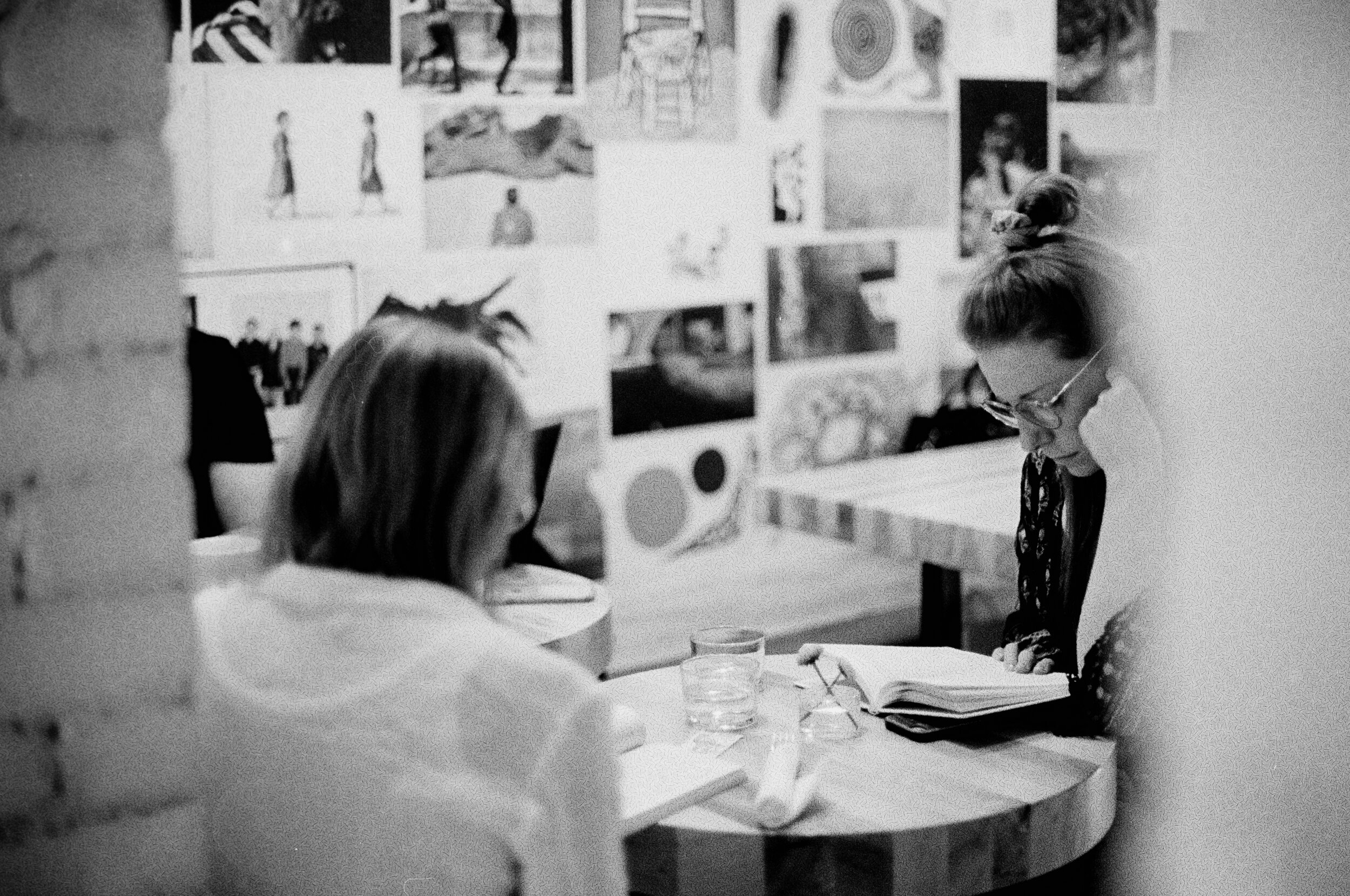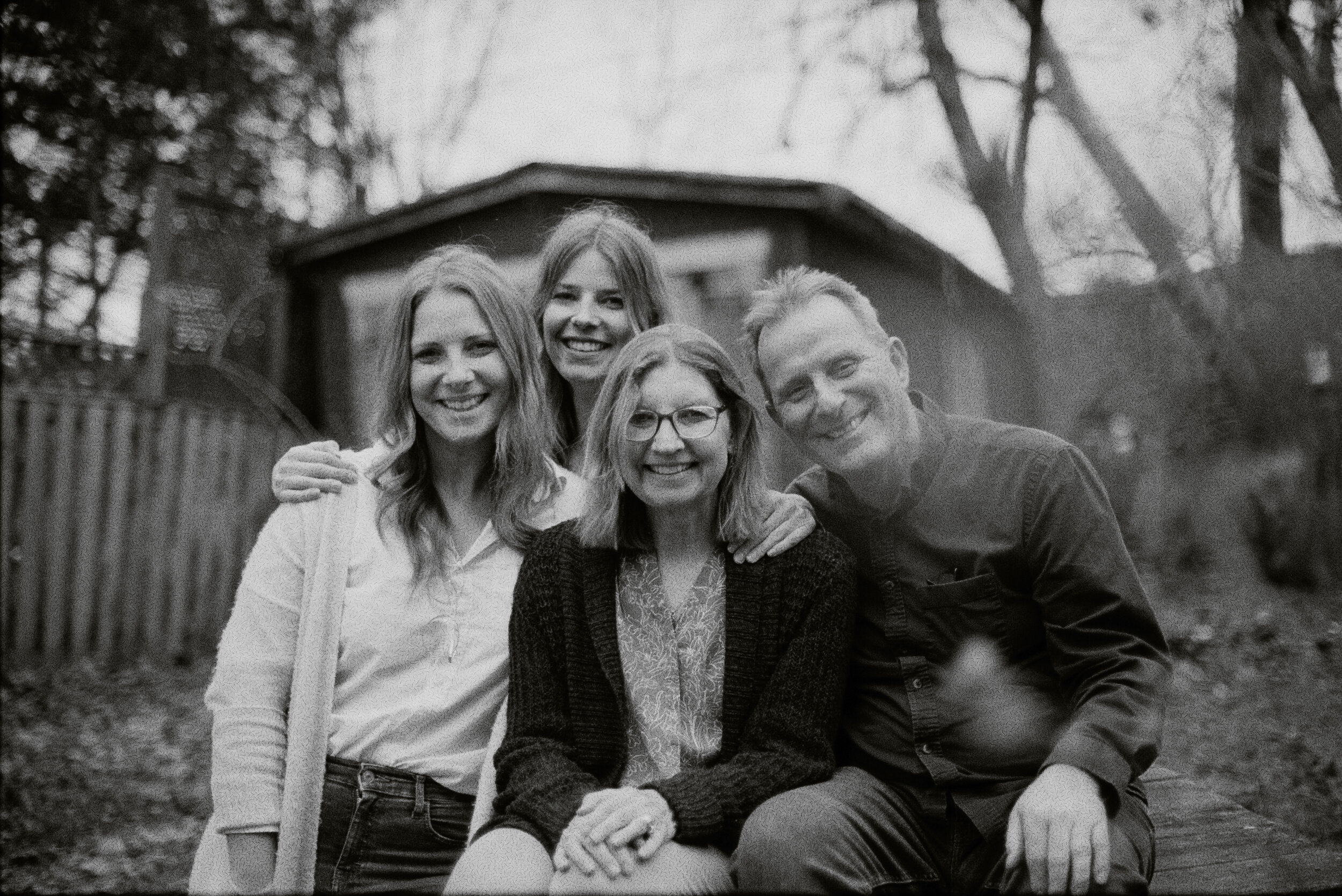Winter is when I rest more. Snow blankets our dark world and brightens bare trees as I sit at my desk often, working. It’s a restful work, one which is generative and gracious, where the art gives to me as much as I give to it. I take time with my sentences, playing with this word or that word, in search of the right one, to help me say what I mean.
In winter, I read a lot. I read for work and fun and I find it gratifying to reflect on my year through what I’ve read. As a bookseller, I’m privileged with reading books before they are released, for reviews and for pleasure. What I noticed this year was I didn’t read outside of my comfort zone, instead, I stayed close to comfort, to the subjects that are near, to the questions I am mining in my life. I required this closeness and reflection.
Books I read are locked in memory around the season I read them, “my Mexico book,” or “the book I carried in my purse all summer.”
Some books we let sit on our nightstand for a year before we can open them. Some books we own and do not open. Some books we devour, reread, again and again, and I am hard-pressed to say why this is, only that some propulsion inside us knows when we are ready for a book, for our lives to be changed by the contents.
With this, here are my top 10 books of 2024, in order of when I read them, with reviews that are no longer fresh in my mind but given the perspective of time, I’m able to offer you the feeling they left me with, a studied opinion and how I was affected by their words.
My Top 10 Books of 2024
All Fours by Miranda July
When Miranda July’s latest book came into Queen Books as an ARC (advance reader copy) last winter, I snatched it up and took it to Mexico with me as my warm getaway read. In the Babygirl era where powerful women are drawn in by young men, to draw out a part of themselves they’ve managed to keep hidden, no matter the cost to self, this is a book that screams the message hide no more! What both All Fours and Dutch director, Halina Reijn,’s Babygirl have in common is an ending of integration, where a woman who follows her pleasure and promiscuity, right to the end, does not end up horribly punished, like the trope of the fallen woman as a tragic figure, as so many male authors have historically done—Shakespeare’s Ophelia, Tolstoy’s Anna Karenina, and early feminist writers like Warton’s unhappy Lily Bart in The House of Mirth or Chopin’s suicidal Edna Pontellier in The Awakening. To some, this is known as slut-lit, an alternative narrative to the one we’ve been told about female desire for centuries, one where women who transgress are banished or punished to live as outcasts. Mimi Wong has a fabulous essay about this in The Offing from 2016. The image titled, What Will The Girl Become From Light on Dark Corners: A complete sexual science and guide to purity by B. G. Jefferis and J. L. Nichols (1895), is the most fucked up messaging and yet completely unsurprising, and though not this overt in 2025, still at work today. Books from authors like Jamaica Kincaid, Marguerite Duras, Mary Renault, Elaine Dundy and Kate Bolick, investigate this idea even further and are trusty handbooks in a contemporary world, where modernity is used as a guise to mask our ever-growing puritanical ideologies, where at the very least women must be able to make mistakes and move on with life.
Back to this book though, which I read in the Mexican sun, with sand in my bikini line and salt on my tongue. All Fours is a ridiculous rapturous book about obsession and grief, art, love and desire. I couldn’t put it down. July’s writing is consistently tender and funny. By far one of my favourite minds at work today. I read this in Mexico City, then Sayulita, where night after night I saw a crowd of boys dancing in the street, and a fuzzy tingling sensation crept up my thighs. All I wanted to do was join them. When you read it, you’ll know!
Bear by Marian Engel
A Canadian cult classic that’s been on my list for years and for whatever reason I hadn’t read. Working at Queen Books, staring at the picture of a naked, sensuous, woman wrapped up by a bear, claws and all, I could no longer resist. I read this strange, wonderful book in one sitting. Another piece of literature that examines the beast inside us alongside our domesticity.
Liars by Sarah Manguso
“I grew up half crazy.” Or “Without meaning to, I began to restrict the material in my diary…so my body became their cultivation dish.” Or “With each public kindness, he could do worse things to me in private.” Or “By the time he left me, he hadn’t cleaned the bathroom in ten years.”
I could go on and on with quotes as the prose in this book is terse and memorable.
In no way is Liars a light read. I was so immersed in Manguso’s sharp thoughts, her study of a marriage, I’ve forgotten the season I read it in. I’d pulled it off a tall stack of ARCs in the bookstore’s basement and opened its pages on my lunch break. Manguso, in her searing voice, distills everything down, like a reduction. She joins other acclaimed divorced literature, Cusk’s Aftermath, Jamison’s Splinters (also a 2024 relsease), but she does so in a completely new way, where the novel allows the narrator to be resolute in her rage, exclaiming “marriage makes liars of us all.”
An intentionally layered work, told in first person narration from Jane, a writer, who marries an aspiring artist and follows his unreliable opportunities, which provide him sporadic success at the cost of Jane’s own. With ruthless clarity, Manguso examines, commitment and resentment, as well as the minute details and small grievances within a shared life, that in no way are petty, but cumulative. Liars is incredibly intimate and always fierce. The read was sad and brilliant and tortured with a light brush of normalcy at the end. I was spellbound.
Alphabetical Diaries by Sheila Heti
I started reading these diaries, released in a column in the New York Times in winter 2022, long before they became a book. I couldn’t wait to read the next release—C—“Curiosity is not a good reason to get married,” wrote Heti. In February, my friend Rebecca and I attended the launch of Heti’s Alphabetical Diaries in conversation with Claudia Dey (who wrote Daughter, on my top 10 list in 2023). Not only did Sheila compliment Rebecca’s hair, which was a highlight, but the conversation with Heti and Dey was rigorous, fun and perfectly centred on craft, which is always what I want, especially when the book is autobiographical. Give me all the ways you write, your habits, quirks, mistakes.
Heti is a force and such a playful person, she’s subversive in all the right ways and I can’t get enough of her work. This small book is large in thought, full of philosophical inquiry and personal confessions, one you can pick up at any time and read out of order because other than the alphabet, there is no order, yet there are recurring themes that surface throughout the 500,000 words Heti collected from her journals over ten years and put into a spreadsheet to sort sentences from A-Z. Just the kind of intense process mixed with quirky obsession I love in a project.
Motherlike by Katherine Leyton
I read Katherine’s book in early Spring when I was thinking a lot about motherhood and my choice to get a second IUD reinserted. Though I have since had my IUD removed, more on that in an essay I’m working on to send out on submission. Within Katherine’s pages, I found solace for my seeking heart and also confirmation for my choice. Leyton candidly, and poetically, weaves historical research and cultural commentary with her experience of becoming a mother, through vignettes of birth control history, her second-person notes to her son and facts like the only other animals, next to human females, that live decades past their ability to reproduce are short-finned pilot whales and killer whales, towards admissions like “I am still not fond of infants.”
Something in Leyton’s voice reminded me of my mother, how she wrote to me before I was born and then after, a short paragraph for each month of the first year of my life. I still have these and they are an invaluable gift. There is a joy and sweetness that I am so grateful for, to have experienced this kind of love from my mother, despite her not having such an experience from her mother.
Garden Against Time by Olivia Laing
When I heard Olivia Laing was writing about the restoration of her garden, I could hardly wait for its release. I almost bought a ticket to England just so I could have the book weeks earlier than the Canadian ARCs were sent out. This book unearths the politics and history of cultivated spaces but also sends out a manifesto underlining the importance of outdoor spaces for all, especially gardens. I’m envious of Laing’s life now, their home in Suffolk and of their prose, their writing opportunities and their witch-hazel.
The book explores the complicated nature of the garden, through its foundational history rooted in colonialism, but also how the garden, is a space of delight, resistance and even the solve for our current climate crisis. In a biodiversity audit carried out by Great Dixter a few years ago, there was a wonderful revelation that their ornamental gardens, the cultivated ones, held more biodiversity than their wild spaces, like their woods and meadows. So contrary to opinion, how we cultivate gardens, with succession planting, natives, herbs, and unusual pollinators like the Canadense (Canada Lily), which though it’s native, I have never had the privilege of seeing in this country. So, we must plant. We must plant to save our earth. This book will get the intensity of your emotions up, much like a day in the garden can—the fury, ridiculous despair, beauty and uncertainty—but it’ll also get your hands in the dirt and your heart aflutter, experiencing the joy and incredible disturbance, the violation within the garden as place.
Intermezzo by Sally Rooney
This was my summer book. I took it everywhere with me, to Newfoundland, Halifax, then Kenora. I read it by water and thought about my sister, despite the book being about two brothers. The novel is infused with sibling love, the complication of it, the jealousy, the difference and sameness, and the unconditionality of such bonds. As soon as the book was released in September, I bought my sister a copy.
What I like about Rooney’s prose in this novel is the interiority of Peter and the distinctness of Ivan. She captures each character perfectly, and consistently. Peter’s anxieties became my own as I read and Ivan’s growing confidence, rubbed off. I always enjoy the way Rooney writes sex scenes; her intimate sentences are truly like no other. She is a novelist, through and through.
Coloured Television by Danzy Senna
Another marriage story, another Jane, but different outcomes.
This book was recommended by my friend, and Queen Books co-owner, Alex. I popped in during off-season and said I was in a reading funk; I couldn’t get through anything. “Read Danzy.” Alex said handing me the psychedelic fuchsia-red and gold hardcover. “I’ve always liked her, but this is her at her greatest so far.” Alex was right. I took the novel home so I could flip through the structure. I was in the height of flower season, biking about forty kilometers to the studio each day so I knew the audiobook would have to do. I fell for the cast of characters, for Jane and her high hopes that she’d turn her life around with her too-long-too-serious novel Nusu Nusu, and catch-up to the Hollywood elite. Senna remains hilarious even while discussing race, class, and creative appropriation. This is a book about art and commerce, ambition and soul-work amidst the desire for a better life, for oneself and for one’s family. I devoured it and laughed out loud, wind in my hair.
Didion and Babitz by Lili Anolik
The sticker I put on the book at work is “For the love of gossip!” Anolik has changed the way I read CNF and what I expect from the genre of creative nonfiction. Anolik is a special writer, only this writer with access to these letters by Didion and Babitz could have written this book and that’s what makes it so potent. Anolik’s obsession for her subjects is felt on every page, and she shows us how the friendship and rivalry between these two 1970s literary icons, helped mould their image, and their success. I will never look at Didion the same again and I think that’s a good thing, as she is still one of the greats, but she carefully crafted the image she aspired to project to the world, and within these pages, you’ll see, she’s just human, like us all, and I love this, like discovering your parents are human. Didion’s opaque, elusive, confessional style, is outed and in its place, we are finally given a Didion we can understand and know. Babitz is such a complex and outrageously provocative person, and I came to adore her insights and particular feminist perspective. She challenged Joan, and intrigued her, in ways no one else could in the Didion/Dunn circles. Babitz is brilliant and inclusive, her astute observations and intelligence command attention, that we learn from her, even now.
There has been much controversy over the ethics of this book, especially from reputable journalism sites like The Guardian (which I read regularly and still love and regardless of Rachel Cooke’s opinion, I also still love Didion and her Year of Magical Thinking, so calm down Cooke—many things can be true at once). Statements made like, “This account of the purported bond between Joan Didion and Eve Babitz…is titillating but diminishes both writers.” I couldn’t disagree more. I think it humanizes them, and like all good gossip, has helped women express their voice, exert power, forming their own morals and values, outside conventional norms. I see the witch-hunt for what it is and I’m on Anolik’s side.
Molly by Blake Butler
Writing about Molly is impossible. It was all-consuming and I read it in a fever. I didn’t want to watch TV or drink. I didn’t want to see friends, I only wanted to know how Blake made it through such unspeakable loss and I wanted to know Molly, to understand her, even if she was a secret to even herself. This was the last book I read in 2024 and it was by far the best book I read all year, maybe of the decade, next to Stoner by John Williams, which is a completely different quiet novel. I am so in awe of Blake’s prose and his self-reflection amidst the wreckage. This book made me want to write like my life depended on it and I haven’t stopped since.
Finally, I will give an honourable mention to Cooking for Artists by Mina Stone, which got me through 2024 with nourishing easy meals. One of which I cannot rave about more, Mujaddara (rice and lentils with fried onions). I also cooked with more white anchovies than ever and returned to this gorgeous book month after month. I use all her salad dressings regularly. Earlier this month I marinated bavette with lemon and oregano, seared it and served with a herbaceous baby gem salad dressed with her tangy sour cream dressing and simple boiled potatoes tossed in dill. A take on Nina’s Greek-style seared skirt steak. I’m constantly tweaking recipes to suit my mood and my cupboards. This week I have plans to make her Root Vegetable Soup with Pistachio Parsley Pesto, likely subbing delicata for butternut because that’s what I have in my fridge.
In retrospect, I see why I needed to be hemmed in by what I knew last year, by what felt familiar, why I needed the stability of commiseration and my own truth validated because I required a confidence to continue with the story I am trying to write and to trust the choices I’ve made, all these years, to be able to tell it. I am a slow writer, interested in beautiful books, ones which endure, and have been poured over, which last over time, where I can see the author interrogated every editorial decision, and where the book becomes the best version. I work four jobs throughout the year, with teaching gigs on the side. My life is full of interruptions, distractions, and also full of art. So much of what I love about writing is how I feel when I’m inside of the words, enveloped by them, my life the letter.
“The art life, is a great life,” said David Lynch, “It’s so great to be in it, while you’re in it, deep.”
I’m in it deep, not in the art world, though I am part of it here in Toronto, no I’m in deep with my art, invested in creating it, in the process of making and revising. I love those sweet hours of time I intentionally carve out for my writing, and I am challenged by the editorial process of investigating myself, my authorship and the questions I’m trying to resolve.
I’m a private person, who loves to share, what better place than a book. What better place than what I read and also, want to read, and one day when the manuscript is in a place, I’m proud of, what I’ve written.
My most anticipated reads for 2025 are not all new releases but rather, my personal list I’ve already started reading and aspire to read. You’ll notice there are a few more male authors on this list, an intention I’ve set for myself this year. I am also reading outside the genre of lit fict, personal essay and memoir. I miss other worlds, and existential inquiries into the human condition. I’ve never read a western, so I’m going to read one and I’ve always adored food writing, so I have two on my list, one, which I’ve just finished and cannot praise enough. Not only because the author is my friend, but because, she is really good at writing and her story, is not to be missed—a true story of hunger love and plenty. How to Share an Egg is the only title I’ve given a small review for as it’s released this Tuesday January 21st and the only book on this list I’ve read in full.
My Most Anticipated Books for 2025.
How to Share an Egg: A true story of hunger, love and plenty by Bonny Reichert
I LOVED THIS BOOK. It’s a stunning debut, a memoir about—heritage, food, the search for purpose, what we inherit and leave behind—but most of all, this writer, this author, notices the outline of the little door at the back of her psyche and invites us in. This is a sensual book, one of tremendous insight where I felt as if I were being tucked into a heavy blanket knit by my nana on a cold winter night. After finishing the book I wanted a steaming bowl of Cholent. Bonny’s writing is even better than her cooking if that’s possible. My favourite chapter was Strawberry Butter — the sweet softness of returning to oneself, slowly, amidst the rubble of a life that was being lived for everyone else.
No Fault: A Memoir of Romance and Divorce by Hayley Mlotek (not quite a big idea book, although I do consider the subject of marriage and divorce—a big idea, the book serves as cultural commentary, literary criticism, history and memoir and Mlotek is a fresh Canadian voice that I’m absolutely becoming obsessed with, already half-way through and I want this book taught in school)
Still Life with Remorse by Maira Kalman (an art book, a beautiful book)
A Frog in the Throat by Markus Werner, Translated by Michael Hoffman (a work of translation I’m curious about)
Playworld by Adam Ross (who doesn’t want to read about being let down by the adults in 1980s New York City)
The Other Valley by Scott Alexander Howard (returning to my love of speculative fiction at the recommendation of my friend Jeremie, who has excellent taste)
Sleepless Nights by Elizabeth Hardwick (something old and timeless, in the plotless unusual novel category, Hardwick, alongside her ex-husband Robert Lowell and others, founded the NYRB and I need to read her)
Lonesome Dove by Larry McMurtry (i’ve never read a western, but I’m starting here at Stephanie Danler’s recommendation and the hype it received as greatest novel of all time, plus, Liz, the other co-owner of Queen Books vouches for it and I trust her)
Honey from a Weed by Patience Gray (not quite a garden read, but food as a feeling read, like M.F.K Fisher vibes and the title alone won me)
Sister Snake by Amanda Lee Koe (this is the genre I usually read, and I will read because of the cover, the sisterhood and past lives as snakes, AND I like to travel in books, Singapore here I come)
Old Soul by Susan Barker (the one horror novel I might read, and stomach)
The mystery thriller I will read is still up for debate. I have a lot of people in my life who love this genre and are vying for the spot, my partner included. The writing must be good, more important than plot for me. Some options are, I Have Some Questions for You by Rebecca Makkai, God of the Woods by Liz Moore, or The Secret Place or Broken Harbour by Tana French. I might not choose; I might just read them all.








































